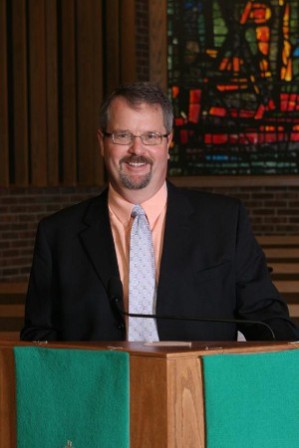|
restoring our biblical and constitutional foundations
|
| welcome |
October 2010 Blog Archives
Sunday, October 31
8:05 PM Here are three very special families. Meet Pam and Kevin Brown and their kids:
Meet Dale and Lori Jennings with Chloe:
And meet Matt and April Rummage and their beautiful children:
And here are two very special people -- Andrew and Clara Brown. I am "Docta Bwack" to them. Love it!
All of us got together at the Browns' home in North Wilkesboro on Saturday night for an Ethiopia reunion. Kevin, Dale, Matt, and Kevin's eldest daughter Katy are all former team members. In fact, when Katy went with us to Ethiopia she was only 15 -- a reminder that there is no teenage Holy Spirit and adult Holy Spirit. There's just the Holy Spirit. Amen?
The fellowship we enjoyed went far beyond the gastronomic. As we talked my mind wandered to a famous book published in 1967 by Hans Hillerbrand called The Fellowship of Discontent. Each of us feels a holy discontent with the status quo in our churches. (I hope it is a holy discontent.) Like the radical reformers of the sixteenth century and earlier, we desire to cut to the root of the church. We feel a holy dissatisfaction with the "affluenza" (Kevin's term) that characterizes Western Christendom. We desire with all our hearts the establishment of a church that Luther once described as "Christians in earnest who profess the gospel with hand and mouth." (This is my only nod to Luther on Reformation Sunday!) We see the church today mired with its own success and apathy. We long for a community of believers that is characterized by simplicity, democracy of organization, theological purity, humility of spirit, strong fraternal feelings -- in sum, a church composed of those who, in the words of Waldo (the founder of the Waldensian church in 12th century France), "follow nakedly a naked Christ." We want to be believers who live in such a way that proves that the church's task is to give itself in love and service to the world. I doubt that any of us -- I know I don't -- think that we live up to our aspirations. Sometimes I feel like the perfect hypocrite. Here I am, preaching about sacrifice, and but have I sold everything to follow Jesus? No. Am I just another Zwingli, a Greek scholar who had become (in the eyes of the Anabaptists) a mere "halfway man," afraid to face the consequences of his own teaching? The Anabaptists made the Great Commission the responsibility of every Christian. We Baptists have outsourced missions to professionals. The early Quakers went into all the world with a carelessness about geography. We ask ourselves, "But is it safe?" The Methodist leader Thomas Coke died in 1814 on his way to Ceylon. James, a 24-year old Burji, willingly exposed himself to grave danger when he translated for me while I preached to the Gujis, not knowing that a few weeks later it would cost him his life. Am I really seeking in my own life what the Hutterites called Gelassenheit -- a German word that connotes a complete yielding to God's will by the radical elimination of self-will? It is a high and holy privilege to serve Jesus. It is our assignment to reveal Him before a watching world. And you and I are added to the list of participants. Will we carry our weight?
But I've got to stop here. Bright and early tomorrow morning Bec and I leave for UNC Hospital, she for her CT scan, me for my appointment with the urologist. Meaning, of course, that tomorrow is a pretty big day for us both. I am, frankly, bone tired. If I had my way, I would do nothing the rest of the week. But there's no time for that now. Know what image is going through my mind as I sit here typing? It is the image of 15,000 Confederate soldiers marching across that "deadly space," on and on until they reach Cemetery Ridge on the third day at Gettysburg. When Longstreet's Assault began, no one knew what the outcome would be. Would it be a victory for General Lee and the end of the war? Or would it be the "High Water Mark" of the Confederacy and the beginning of the end for Southern independence? None of those 15,000 privates and corporals and first sergeants knew. But they did their duty. And, on the Federal side, Hancock's Corps stood ready to do its duty and fight them tooth and nail. Yes, I'm tired, but I'll press on, knowing that I need not fear the outcome. As Lee would have said, It is in God's hands. The early fires of youth may be just embers in my life, but the God of the past is the God of the future. I may not be able to mount up with wings as eagles or run and not grow weary. But I can walk and not faint. I can put one foot ahead of the other. I can do my duty. Longfellow once wrote, "Something remains for us to do or dare/Even the oldest trees some fruit may bear." God's not through with me -- or you -- yet.
It is one thing for me to serve God on Sunday. It is quite another to submit in uncompromising, unquestioning obedience each and every day of my life. If God should decide to use my pain as a platform for His glory, who am I to resist Him?
Saturday, October 30
8:20 AM New essay at DBO: Interview with Heath Thomas, author of "Until He Looks Down and Sees": The Message and Meaning of the Book of Lamentations.
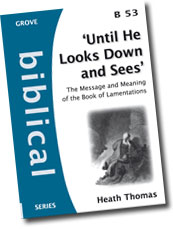
8:12 AM Today we leave for North Wilkesboro. Bec's blood counts are a bit on the low side. Prayers appreciated.
Friday, October 29
6:45 PM Heard the one about the two housewives standing in the line at the grocery store? One of them says to the other, "I hate washing dishes. You do it once and five weeks later you have to do it all over again!" We try not to let maintenance projects on the farm last longer than we should. Today it was roofs and driveways.
The painters cleaning the tin in preparation for painting next week.
Laying new gravel on all the driveways.
Hand spreading the walkways.
Caleb raking out the gravel.
Isaac shovels the gravel.
Micah spreads gravel in the carport.
Liz helps out, of course.
Farm fresh bread. Becky's project du jour.
Right now Matt has a fire blazing in the front yard. I think he's roasting Ethiopian coffee. Gotta run!
12:28
PM
This morning, in a little corner of my mind, I thought about a
conversation I had on campus a couple of months ago during one of our
conferences. I didn't really know the young man I was talking to. He
sought me out and wanted to tell me about his mentor -- a widely known
evangelical pastor. He went on and on. Stars in his eyes. I mentioned we
all needed to be careful about exalting mere men over Christ, especially
men we highly respect. Judging from the look in his eyes, I think this
may have been the first time in his life somebody warned him about his
attitude. I thought to myself, Was I too forward? Tell me, if you
can, what should I have said? The atmosphere was like nothing
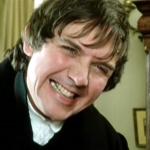 I'd
ever experienced. I've never heard a more fawning attitude toward
anyone. I didn't push the issue, and I don't really want to do so now.
I've been sitting here in front of the screen for a while now, wondering
if I should even publish these thoughts.
I'd
ever experienced. I've never heard a more fawning attitude toward
anyone. I didn't push the issue, and I don't really want to do so now.
I've been sitting here in front of the screen for a while now, wondering
if I should even publish these thoughts.
I think the church is undone when we become idolaters. The young man reminded me of a character in the movie Pride and Prejudice, the right reverend Mr. Collins, who is always prattling on about his patron, Lady Catherine de Bourgh, whose "condescension" is indispensable to his earthly happiness. How subtle are the devices of the Evil One who raises doubts as to what God said about idolatry. So again I ask the question: What to do about this attitude? Other than grieve?
It is a sad day for the people of God when we start our Christian fan clubs.
9:52 AM If you're a pastor and facing burn out, please do yourself a favor and read Eric Carpenter's latest post called Becoming a Statistic. The statistic to which he refers is the average length of pastorates: 2-4 years. Needless to say, that's a bit shocking. Why do think this is? Join in the discussion over at Eric's blog.
9:44 AM Honored to be speaking in Doug Bookman's New Testament class at Shepherds Theological Seminary next Thursday night at 6:00 pm. He's asked me to speak on my views of Gospel origins. Join us if you live in the Cary area. The address is 6051 Tryon Road.
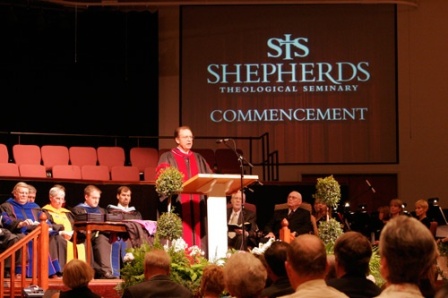
9:32 AM This Sunday Becky and I will be speaking at Mount Pleasant Baptist Church in North Wilkesboro, NC. Bec's been asked to give her testimony and I'll try to give a brief update of what the Lord is doing in Ethiopia, or at least those parts of the country that we have visited regularly during the past 7 years. I love pastor-teacher Kevin Brown and his family. In many ways, he's a hero of mine. Here's a man with absolutely no formal biblical education who probably understands the Bible and the Christian life better than most seminary grads I know. Not only that, he serves the church he grew up in. Now how unique is that? The Browns have adopted two precious children from China who call me, affectionately, "Docta Bwack." I can still see them climbing on my lap every time we visit. I'm not sure why they're so drawn to me. The beard? The really neat thing about Kevin is that he's a true brother in Christ. He's always emailing us. "How's sister Becky doing? Has Dave gotten an appointment yet?" Kevin and I spent an incredibly intense time in Alaba, Ethiopia, a couple of years ago. You're probably already getting tired of hearing me say this but I am absolutely, positively, radically convinced that doing missions local church to local church is the only way to go. Few churches in America do this better than Mount Pleasant. I know God's heart must ache when He sees Alaba. So much illness and death, so much hatred toward His people. The cost of being a Christian may well turn out to be your life. I can't believe I have the privilege of serving Jesus in such a place, or that I have such dedicated and courageous co-laborers like Kevin and his daughter Katy. On Saturday we're going to hang out with the Browns, then Sunday I get to tell the congregation about Ethiopia. I feel so small, so overwhelmed whenever I try to relate to others what God is doing to redeem His own in Africa. I get teary-eyed just typing this. Even though I've been doing this blogging thing for 7 years now I still get amazed at how effective the internet is in getting the Word out. People have been led to pray for Ethiopia simply because Becky and I may have posted something here. All this translates into the fact that I feel a huge load of responsibility for this Sunday. I'll do my best, realizing that God is more than able to make up for my deficiencies.
Here's Kevin's "mug shot." We send it to the churches before the teams arrive so that they can learn how to connect name and face. Needless to say, at 6 and a half feet tall, Kevin stands out a bit from the rest of the group.
9:22 AM Saw this at a church website yesterday and it got me thinking. The page was called "Who Leads Us?"
We are congregational. The last and final court of appeal in a matter of the life of the church is the local congregation itself.
This scares me. Jesus, through His Holy Spirit and Word, is the last and final court of appeal, is He not? As churches, let us celebrate Jesus. Let us give Him, not us, the preeminence in all things.
Thursday, October 28
6:41 PM Got this email today:
We continue to pray for Becky and yourself. We trust our Father with the outcome, as it is clearly evident you do also. Your writings are a great blessing. I share relevant articles, etc. with some of our brethren, particularly the much loved church from which we retired.
Over the years, I have been amazed at times, how, what appears to us to be a calamity, God turns into an enormous blessing.
This one also came:
In reading your blog, my prayer is for you that the Lord would grant you excellent health for His service which is also your service. Also, thank you for your honest sentiments regarding your fears. Certainly it resonated with me, and I'm sure, all who read the blog.
I've added them to my "encouragement file." Thanks to everyone who takes time to write. You are my Barnabases.
4:12 PM What a crazy day it's been. I drove to Oxford to find Becky some fabric for our new cushions, then I went to Ace Hardware to get a repair kit for the water line we broke today while running the new propane line to our fireplaces. (You know you're getting old when you replace your wood burning fireplaces with gas logs. It's just so much easier to have a pleasant fire with gas logs.) Yesterday we had quite a big storm blow through here (and there was an honest-to-goodness tornado that touched down in Roxboro), but today is sunshiny and humid. Thankfully I see no real damage to properties in our neighborhood. I'm getting some writing done on my book Godworld while Becky is finishing up the chair cushions. We don't talk about it much but I think we both miss Ethiopia. A lot. It seems like years since I was there. The thing I miss the most are the relationships. I also miss -- can you believe it? -- the different approach to time. Having lived in Switzerland I think I know a thing or two about punctuality. I remember we had a dinner guest arrive at our little apartment a minute early and she waited 60 seconds before ringing the doorbell. So I'm used to Teutonic punctuality and all that. In Ethiopia -- well, in Ethiopia you have to adjust to pre-industrial ways of living. Technically simpler cultures have a very different approach to time. I know Hawaii did, where I grew up. Differences in how people approach time are fundamental to many misunderstandings between our American missionaries and our Ethiopian counterparts. In the main, Ethiopians spend their time in one social "space," whereas we tend to pass through several different environments every day. For example, today is Thursday, October 28, 2010. My day will involve reading, writing, blogging, answering and reading emails, running errands, fixing this or that, cooking supper, and reading the boys a bedtime story. Moreover, every morning I form a basic plan of action for the use of my time -- subject to variation of course. In rural Ethiopia, fixed time references are not used. The clock is no master of the Ethiopian. It does not tell him when to go out into the field or her when to prepare her meals. Early on in our work in Ethiopia I think I made the mistake of expecting villagers to be ready to meet us at such-and-such a time for our Bible programs. Efficiency and punctuality are impossible where nobody has a watch. Early on I think I also had an over-idealistic view of the Ethiopian way of life, especially the less hurried pace and the more natural rhythms of life. For all its benefits -- and there are many -- a timeless society has some real disadvantages, perhaps the most obvious being its susceptibility to natural determinism. In Ethiopia, we've sometimes found it helpful to incline more toward side of the polarity (being flexible) and sometimes more towards the other (careful scheduling). Casualness must be balanced by consistency if we are to work against the tyranny of time. I think I'm getting better at all this, but it's a high learning curve. That said, there is nothing in this world quite like sitting down for a cup of buna or shai and just chewing the fat with your brothers and sisters. Can't wait to spend eternity with them.
To my Ethiopian friends I say: I'm sorry I can't tell you when Becky and I might be coming back to see you again. But there is not a second when you are not deep in our hearts. Let us continue to pray for each other, that God's will may be done in our families and in our lives -- in His good time.
Below: I took this photo back in June of 2009. When the children in this village heard that a 14-year old American named Katy would be visiting them that day they appeared out of nowhere to hear her speak. Everywhere she went she had a large and enthusiastic audience. I was so proud of our son Mohammed (left foreground -- with the big smile) who went with us and assisted his newly made American acquaintance. Mohammed, as you know, was in prison for murdering a Christian when we first met him. So many happy memories. And all of them expressions of God's amazing grace.
2:57 PM Becky's latest essay is called I'm Healed!
2:34 PM Thankful for answered prayer. I just got an appointment with a urologist next Monday morning at 8:30 at UNC Hospital.
1:51 PM I had several of my students ask me on campus how it was coming with my little medical problem. Becky is still working on getting me an appointment with a surgeon. I find myself struggling to write about this right now. My life continues to be so "normal" except for this mysterious growth. I go about my days as if nothing's wrong -- and in fact nothing may be wrong except for the inconvenience of a benign lump. And yet...
Becky has assumed the role of my "official" medical advocate. This suits her temperament as well as her background as an ICU nurse. I can't tell you how many phone calls and emails she has sent out and still she plays phone tag ad infinitum. It must be a bit frustrating for her though if it is you'd never know it. She is so even keeled it amazes me. It's hard to get too melancholy when you have someone like Becky pulling for you. When I think to myself, Why does God hide the future from me?, I know the answer is that He wants me to trust Him. And I can trust Him, even though I know I don't deserve His love, even though I know I have an impure heart, even though I dishonor Him with my doubts and fears. I sit here moping until I see God, in a form that looks strangely like my wife's, tell me it's gonna be okay.
1:45 PM When taking Hebrew in seminary back in the Dark Ages we discussed the Hebrew verb system in only a very sketchy sort of way, as if there was nothing controversial about the topic at all. At one point in the course we looked at the pronoun hu ("he") and asked whether it might ever be used as the equivalent of a copulative verb in Hebrew. Yesterday, Bob Cole, my co-conspirator in our LXX class, gave me a copy of a few pages he had copied from Waltke and O'Connor's Biblical Hebrew Syntax. Suddenly everything became very clear to me, especially after I read the numerous examples the authors give from the Hebrew Old Testament. Incidentally, sometimes it takes looking at the experts in a field in order to get anywhere when it comes to the intricacies of a subject. The experts opened up for me a whole new understanding, and I'm sitting here thinking how grateful I am to have a colleague who can take a bunch of grammatical mumbo jumbo and explain it in understandable language to his students -- and sometimes to his colleagues. I'd therefore like to propose a new definition of teaching. Teaching occurs when our students end up having more questions about the subject than when they began their studies. I know that I'm asking a whole bunch of questions these days about the Hebrew text I never asked before in my life. And sometimes I'm even getting the right answers. All to the good.
Thank God for brother Cole. Glad he's a patient soul.
10:10 AM I slept in until 9:00 this morning. That's a first. It was a busy time on campus. Sometimes I feel like a brain surgeon. You spend hours teaching 4 classes, then you have non-stop meetings, then you try to sneak in a little bit of writing. You do the math. I'm standing in the gap in one of the greatest battles there are in life. Your students have to make the most important decision of their lives, if they haven't made it already. You're trying to teach (or, better, model) the Christian community portrayed in the second chapter of Acts. These early believers had a large treasure of worldly abundance that was by no means used for selfish extravagance (think Crystal Cathedral) or unnecessarily. There was no concern about temporal things, no vanity. Instead we find a lovely harmony. Their theme was "All for Jesus." This lesson cannot be learned in a classroom, although we did touch on it in our Hebrews class on Tuesday and, via rabbit trails, in our other classes as well. In Hebrews we're in chapter 8. The Greek here is simply magnificent. I'm not trying to get you to totally understand all we discussed. Just know that we didn't stop at parsing verbs and writing structural analyses. After class I jotted down 5 marks of the New Covenant:
1) It preaches Christ alone. He is the only mediator between God and us. This is strong language. We can't tone it down or try to explain it away. There is only one saving Gospel.
2) It liberates from legalism. Our Lord did not come to make life narrow and rigid but rich and full. Abundant life does not consist of things. We may have many material possessions and not have it, and we may have nothing and possess it fully. The abundant life consists of God's grace, pure and simple. And God delights to give us treasures from heaven. If you are a follower of Jesus, you are a plutocrat, not a pauper.
3) It eschews all human mediation. In the New Covenant each of us can know God personally. He invites us to learn of Him and promises to give us rest. This is far better than getting information second hand from our professors and pastors. It would be wonderful to overhear everyday Christians who are excited about exploring the riches of God's Word for themselves.
4) It minimizes the mechanics. We are no longer preoccupied with the externals of Christianity. God is not impressed with all of our ornate temples and sanctuaries. Vestments, gold, altars matter not. The simpler our faith, the better.
5) It leads to love of neighbor. We understand the New Covenant properly when we see ourselves as God sees us, as members of a new community that becomes the proving ground of our religion.
I don't want to forget these lessons, I told myself after class was over. "They will all know Me, from the least to the greatest." This is a revolutionary truth. That doesn't surprise me, because the Bible is a revolutionary book. Jesus has created a new community of people that come from all classes, and distinctions between rich and poor or between least and greatest are lessened by holy, loving fellowship and unity.
I never want to take for granted these truths or the awesome privilege I have of teaching these Jesus-followers.
Wednesday, October 27
6:57 PM Had a wonderful lunch with my student Heebum and his wife at a Korean restaurant in Raleigh today. Korean food is my all-time number one favorite cuisine in the world. I wish we had more international students at SEBTS but I'm thankful for each and every one that we do have.
I once taught at the seminary that Heebum attended in Seoul (Chong Shin). We reminisced about the city, the culture, and, of course, the great food, including kaegogi -- dog meat -- which is a real delicacy in that nation. If you're ever in Raleigh and want to sample some really great food, try the Seoul Garden. You will not be disappointed, though you won't find kaegogi there.
6:53 PM Kudos to Craig Blomberg on his new book, Handbook of New Testament Exegesis. It is reviewed here by Nijay Gupta. It's an important work for every student of the Greek New Testament. Craig's ten steps are not vastly from my own in Using New Testament Greek in Ministry. Thankfully he includes a section on textual criticism -- a step that is often omitted in guides to exegesis.
6:45 PM I have a very good friend named Jon Glass. He's served with us in Ethiopia on several occasions. He and his wife Matthea are super people. Jon was even kind enough to review my latest book over at his blog (Why you should read "Why Four Gospels?"). Yes, I like Jon Glass! But have you ever heard of John Glas? This "Glas" lived from 1695 to 1773. He was an ordained minister of the Church of Scotland. That is, until he was stripped of his ordination in 1727. His misdeeds?
1) He called for a plurality of local church elders instead of leadership by a single pastor.
2) He taught that the Lord's Supper should be observed weekly instead of monthly or quarterly.
3) He said that ministers should be chosen on the basis of their character and Bible knowledge rather than because of a degree from a theological institution.
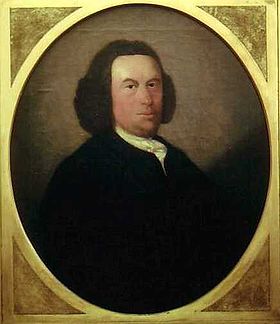
In short, John Glas was defrocked because he attempted to establish a church along the lines of the New Testament. He also called for other Christians to join him in the restoration of primitive Christianity. Later on, in the nineteenth century, the weekly observance of the breaking of bread and the ministry of all believers became the foundation stones for the Brethren movement.
So, what do you think of John Glas? Is the modern church in America ripe for new religious formation? I have a hunch that it is, and that men like John Glas are tragic heroes from whom we have much to learn. Incidentally, in case you're interested in studying the history of restoration movements in the Western church, there are no better resources than Donald Durnbaugh's The Believers' Church and Donald Kraybill's The Upside-Down Kingdom. Wait a minute – I wrote a book on this subject myself!
6:34 PM A recent report suggests that 90 percent of all medical research studies are wrong. That is an astounding figure. This does not mean that Becky and I will no longer pursue medical treatment for her cancer. We've been well-pleased with the medical expertise and care we've found at UNC Hospital in Chapel Hill. (Apparently the good people at M. D. Anderson Cancer Hospital in Houston agree.) But to put it frankly: We are not placing our hope in medical experts, as much as we appreciate the work they are doing. I don't know about you, but I never want to get to a place in my life where I do not look for miracles. Naturalism has never appealed to me. You know, the idea that "since the fathers fell asleep, all things continue as they were from the beginning" (2 Pet. 3:4). This same argument is advanced today by all who try to explain everything by natural law and who refuse to believe that God can break through the usual course of nature. In their thinking, there is no room for God.
Let's say that Becky's tumors are discovered to be gone after next Monday's CT scan. I can hear the oncologists saying, "Well, the Adriamycin did its job!" And you know, they may be right. Miracles are not contra-natural; they are supernatural. They operate in the realm of another world, without denying the physical world at all. God's work can be accomplished through "natural" means every bit as much as through "supernatural" means. So when I say that I am praying for (and even hoping for, expecting) a miracle, I do not necessarily mean a sensational or spectacular thing.
Does that make any sense?
6:24 PM Columbia Theological Seminary announces an opening in Old Testament.
6:20 PM Cindy Bryan asks How exclusive is too exclusive? This is no light question. Should our congregations require people to pay to enter the doors of its meeting places ("sanctuaries")? In my opinion, simply to answer "no" is to miss the deeper issue. It would be treating the symptom and not the disease. The basic trouble is that the old self-life keeps creeping into our churches. With the best of intentions we so identify ourselves with the world that instead of winning others out of it they themselves are converted to it. In America, church has become a business. One thing leads to another. We hire professionals and pay them handsomely, so why shouldn't visiting singing groups be able to charge for their services?
Think about it.
6:05 PM While taking my final oral exams at the University of Basel back in 1983, I was asked a question to which the expected answer was: "Schon, noch nicht." Of course, that was just the lead in to what was expected to be a lengthier excursus on Oscar Cullmann's theology. Cullmann, who lived near me in Basel and whose home I was privileged to be in a few times, impressed me as a scholar who was able to transcend the Catholic-Protestant divide. He had retired from teaching when I met him, but prior to his retirement he had occupied chairs at both the University of Basel and the Sorbonne in Paris. His book on Peter (Peter: Disciple, Apostle and Martyr) was standard reading in Petrine studies back in my days. Today his work has been augmented by a new book by Martin Hengel: Saint Peter: The Underestimated Apostle. A preview is available at Google Books.
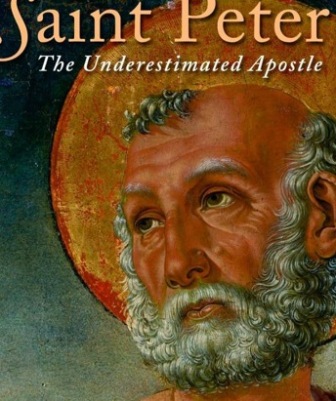
I will be ordering my copy soon. (Currently one of my doctoral students is working in 1 Peter so I need to keep abreast of Petrine studies!) Clearly Professor Hengel believes that both Matthew and Luke used Mark in composing their own Gospels. I'm eager to see the arguments behind his position. I'm also eager to compare his work with Professor Cullmann's. Scot McKnight, in a recent post, opines that Hengel has replaced Cullmann. He may be right. But I plead with every student of Peter out there: Please do not ignore the work of the great scholar from my alma mater.
6:00 PM Doug Bookman teaches New Testament at the Shepherds Seminary in Cary, NC. We've not met – yet – but he's got an excellent blog called The Rabbit Trail that you ought to check out. In this post he discusses the names "Saul" and "Paul" and speculates on why the great Jewish New Testament apostle used a Latin name in his ministry. More than anything, it's a study in intertextuality – proud Saul in the Old Testament becomes the (negative) example for the New Testament Paul. Anyway, read Doug's essay for yourself and see what you think. Don't miss his great peroration.
Monday, October 25
8:13 PM Sound the trumpet in Zion! Becky finished painting the porches today. Glory be! Here's proof.
Students, come and celebrate with us on Nov. 6!
8:05 PM Angela Merkel's recent remarks about the demise of "multiculturalism" in Germany struck a chord with me. When a nation has been scarred by Nazism and the Holocaust it has been because good people have let their demons become their common sense. It became clear to me, as a student in German-speaking Basel in the early 1980s, that the problem of immigration was at the core of the grave societal upheavals I was seeing in post-war Europe. I comforted myself with the knowledge that the "Schwarzarbeiter" laws that were being passed by the Swiss would never affect me, an American citizen. After all, I didn't sweep streets for a living. Today, Germany is going through the same introspective self-examination about its cultural identity. The nation seems to be redefining itself, and there seem to be no easy answers to the question "Who is a German?" Chancellor Merkel has a kind of street smarts that suggests to me that a tepid, familiar agenda will no longer placate the ever-growing immigrant population in her country.

Whereas some Germans seem content to live with the status quo, the Fremdarbeiter are not going to go home any time soon. Their home is, in fact, Deutschland. I doubt that Germany's painful Kulturkampf will resolve itself any time soon, but Germans can certainly develop a tolerant and happy vision for their nation. In an admirable spirit of objectivity, Chancellor Merkel has dared to say aloud what perhaps many if not most Germans have been thinking. We are learning -- all of us -- that the world is flat, and those "furiners" are us.
Notes in the margin: If you read German you might take a look at this essay that just appeared in Die Zeit. As a German immigrant recently put it: "Wir sind keine Türken im Sinne unserer Eltern mehr."
Two months ago I sat in the Frankfurt airport about to catch a flight to the Middle East when I got into a long and pleasant conversation with a family of Iraqis. None spoke English, but all spoke German perfectly, including mom and dad. They owned businesses both in Tikrit and Germany, but considered themselves Germans.
5:56 PM The lump in my groin has begun talking to me. There's a constant dull thump, thump, thump. I figure it's trying to remind me that it's there. Is it growing? I can't tell. It's already large enough. Tomorrow Becky will finalize my appointment with a surgical oncologist at UNC. The sooner the better as far as I'm concerned. The ultrasound has ruled out a cyst, hernia, infected lymph gland, etc. Thus it appears I have a tumor. A biopsy should tell us whether or not it is benign. The other day I blogged: "It is God's prerogative to realign our lives to bring more glory and praise to His name." And I meant it. My body is the Lord's. He created it, and He is completely free to do with it as He pleases. And I know I am not alone in my journey. Becky insists on being at every doctor's appointment, just as I was with Becky for hers.
Today I spent time alone, in prayer, with my Father. There are some things that only He can or should hear me say. I am always buoyed up after being with Him. Still, my emotions right now are a roller coaster. And yes, I am anxious. I'm also busy about the Father's business, and I don't intend on slowing down any time soon. Is there room for both anxiety and trust in the human heart? I suppose so. But not for fear. Perfect love casts all that out.
Okay, enough for now. I'll let you know what we're dealing with whenever I find out. In the meantime, please continue to remember Becky and her CT scan next Monday. I know that many of you have been praying for her complete healing. Wouldn't that be something if the tests showed that the tumors in her lungs are gone?
Basking in His perfect love,
Dave
5:22 PM While running my errands today I happened upon our local Christian radio station that was airing what appears to be a new series on the church by Chuck Swindoll. Chuck had us looking at Christ's promise to build His church and then he requested his audience to turn to Acts 2 for a look at the birth of the church. Focusing on Acts 2:42, he emphasized that there are four marks of a local church. There will always be these four marks, he claimed. There may be more but never less. The four marks, as recorded by Luke, are teaching, fellowship, the breaking of the bread, and prayers. Ironically, and sadly in my view, Chuck reinterpreted the third mark to refer to "worship." Is this, perhaps by metonymy, what doctor Luke meant? I suppose it is possible. Of course, he may have also meant for us to take him quite literally -- that when the early church met it observed the Lord's Supper. I happen to think he meant the latter. The early church was focused on Christ. It fellowshipped around Him. His body and blood were commemorated regularly. Just because many of us no longer do so today is no reason for us to take the breaking of the bread and transform it into what today we call "worship services." (True worship, of course, is not what we do on Sunday but what we do 24/7. See Rom. 12:1-2. I have commented on this subject in my essay Enter to Serve, Depart to Worship.)
It seems, then, that the earliest church in Jerusalem was marked by an emphasis on the Word of God, genuine relationships, a common meal at which their absent but returning Lord would be preeminent, and times of prayer. Acts 20:7 seems to bear this out: the believers gathered together to break bread (note the telic infinitive), not to listen to the apostle Paul preach a sermon. Such Christocentricity would be a healthy thing, I think, for our churches. It would, I believe, go a long way toward replacing the pulpit-centricity in so many of our fellowships. In their essay The Lord's Supper: How Often?, D. G. Hart and John R. Muether write:
Most students of Calvin are aware that it was his desire that churches practice weekly communion. Calvin believed that this frequency could be found in both apostolic teaching and example, and that weekly observance was also the practice of the church fathers. Moreover, Calvin saw weekly observance as necessary for uniting the ministry of Word and sacrament. By sealing the promises proclaimed in the preaching of the Word, weekly communion enabled Christians frequently to return in memory to Christ’s work, and “by such remembrance to sustain and strengthen their faith.”
Infrequent communion, Calvin claimed, was a superstitious horror, “a most evident contrivance of the devil,” and he considered it among the worst of the many abuses of worship in medieval Catholicism. For Calvin, weekly communion was no less important than other reforms he sought, such as the use of the cup by the laity and worship in the language of the vernacular. So Calvin came to the conclusion that “the Lord’s Table should have been spread at least once a week for the assembly of Christians, and the promises declared in it should feed us spiritually.”
In fact, the grammar of Acts 2:42 suggests that the common meal (along with mutual prayer) uniquely represents the fellowship (koinonia) of the church. (The last two marks seem to be in apposition to the second one in the Greek.) Elsewhere I have concluded:
Realizing that each Lord’s Day was “Resurrection Sunday” – a day to celebrate Christ’s risen life – and anticipating that each Lord’s Day could also be the day of Christ’s return, the early believers feasted at Christ’s table as in His presence. This fellowship meeting, at the very heart of which was a social meal centered on Christ, represented the communion that existed between all the members of the brotherhood, because all had a personal fellowship with their Lord.
For the earliest followers of Jesus, the Lord’s Supper created an atmosphere of intimate communion between members of Christ’s Body, regardless of their social status, gender, or ethnic group. According to Acts 2:42 and 20:7, this meal was, in fact, the focal point for the gathering of the New Testament church. It was a time of great celebration and joy. And it was at the heart of Christian fellowship – not at the periphery.
Today we have lost the regularity – not to mention the intimacy, the pleasure, the enjoyment – of the Lord’s Supper. The New Testament pattern of the breaking of the bread has become utterly foreign to us.
Howard Marshall also says it well:
In line with what appears to have been the practice of the early church in the New Testament the Lord's Supper should be celebrated frequently in the church, and there is good reason for doing so on each Lord's Day.
I praise God for those congregations that do, in fact, place high value on the Lord's Table. I was in such a church not too long ago in Pensacola, Florida. There, in the ICON service of the First United Methodist Church, communion is served each and every Sunday. I can tell you, it was anything but perfunctory or boring. I have a nagging suspicion that many of our Baptist fellowships could learn a lesson two from them.
9:16 AM At A Fistful of Farthings appears a delightful study of Ferdinand Christian Baur and the reasons why he may have gone off the theological deep end. It's called Baur's Understandable Presupposition. A taste:
But think about it...where did the historical critical method originate? Guys like Baruch Spinoza saw the atrocities of the Spanish Inquisition and the hypocrisies of "Christianity" and basically swung to the other side. "If this is what Christianity is, I don't want any part of it."
Can you relate to that? If you've been a Christian for more than a month, you probably can. It is certainly no excuse for apostasy or even bitterness, but it makes you think. If Christians had been acting like Christians, maybe there would not have been historical skepticism....
The point is well taken; and I very much agree that skepticism is the natural result of too little genuine Christianity -- or can be.
8:45 AM Going grocery shopping and changing the oil in the van today -- to the glory of God!
8:35 AM Over at Rightly Dividing the Word of Truth, Nick Norelli opines about the plethora of English Bible versions and the problem of consumerism. I think he is correct. I have to. Otherwise, as the New Testament editor of the ISV, I would be a hypocrite.

I recall once bemoaning the abundance of Greek grammars available to me, a Greek teacher. When the latest one came out I would say to my sarcastic self, "That's all we need -- another beginning Greek grammar!"
Then B & H asked me to write one.
*Smile.*
8:23 AM The University of Portland (Oregon) announces an opening in Theological Ethics and Comparative Religions.
8:16 AM In view of the comment about German I posted over at Allan Bevere's blog (I Just Got Karl Barth's Church Dogmatics!), I have a challenge for all of you out there who have learned German for your doctoral studies: I challenge you to read one passage from Barth's Dogmatics in English, and then read the same passage again in the original. Then ask yourself: "Which is more powerful?" Try it. The answer may surprise you.

7:56 AM Yesterday at The Hill I gave a brief announcement about our upcoming Persecution Sunday (Nov. 14), noting that I believed the church needs a fresh call to stick-to-itiveness. Keeping on in a crisis is the point of Heb. 12:1-2 where we read, "Let's go on running with perseverance the race marked out for us." The race marked out for the church in China or Ethiopia or Iraq is an obstacle course. It requires believers to face obstacles of economic deprivation, loss of friends, rejection by family, and physical persecution. I recall meeting with a congregation in Ethiopia during a time of great drought. The local civil government was distributing food to everyone except to the Christians. Would you forsake your faith in order to feed your family? The temptations of persecution are great. Pressure comes in many forms. Economic distress. Emotional duress. Hunger and poverty. You may feel, as Paul did, pressed in on every side (2 Cor. 4:8). Then look! There He is! The Pioneer and Perfector of Faith! He's watching. And cheering. He stands and lifts His nail-scarred hands and cries out, "Run, church, run! My plan for you is perfect. Complete what you have begun!"
I have come to realize that if I seek to avoid persecution and suffering I am a risk to God's effective work in me. Self-preservation, ease, comfort, pleasure and a host of other potential risks lurk under the surface of my life. God knows that the only sufficiency that is truly sufficient is His grace. When he uses pain and persecution to bring us to the end of ourselves, He will always meet us there.
I urge all of us to consider making a special effort to remember the suffering Body of Christ on Nov. 14. That's only 4 weeks away, so begin your plans now.
7:08 AM This view just greeted me. Fabulous.
Sunday, October 24
5:46 PM Over breakfast yesterday morning I reflected with Becky that I am currently the same age Robert E. Lee was at the end of the American Civil War. A famous photograph of the general taken in front of his home in Richmond just after the surrender shows a man at the height of his powers. Broad shoulders accentuate a thick chest. A strong commanding face dominates the uniform, soon to be shorn of its insignia. The lips are full under a prominent nose. The large, well-shaped eyes harbor potential gentleness or the quick threat of thunder. Gary hair and a full beard surmount the whole. It is the face of a man of action, reflecting wisdom and experience as well as drive and willpower. Lee seemed the living embodiment of "SOLDIER."
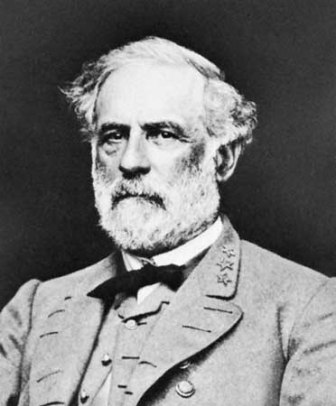
Like all men of powerful personality, Lee evoked strong feelings. This man of dark destiny would soon find himself at the helm of Washington College in Lexington, VA, which in the ensuing years he would elevate to a university of first rank in the re-united nation. Eventually even his enemies would concede Lee's physical courage and devotion to duty, not to mention his military genius on the battlefield. What I know about the American Civil War would not tax a slender notebook, but I realize my limitations and am always to eager to fill in the gaps. No book has helped me to do this more than Charles Bracelen Flood's Lee: The Last Years. It was as an educator that Lee believed he reached the pinnacle of his career as a son of Virginia. He gave his faculty intense loyalty and in return gained a devotion that bridged the years with a span of steel. The book shows Lee as an innovator and a Christian man devoted to his God (the first building he constructed at the college was a chapel). It reveals that there is much to be admired in this son of the south. But it also shows us that General Lee is no über-hero who is to be worshipped -- and Lee would have been the first to say so.
The American Civil War is one of the world's greatest war stories, combining as it did so much, so suddenly, so unexpectedly, in such tragic compass -- the result, on the one hand, of false assumptions, fallacious views, and human error in abundance and, on the other, fanatical dedication, iron determination, and plain old-fashioned courage. In my estimation, the leaders on both sides of the conflict were, for the most part, honest, dedicated, and intelligent. But as human beings each single one of them was fallible, capable of egregious errors and misjudgments. I desire to learn from history -- to reflect on its great men and women and the strange twists and turns that made them who and what they were. At the age of 58 do I, too, stand at the crossroads of life? How will I be remembered in the distant future, if I am remembered at all? What strange twists and turns await me -- or you? Uncertainty tells us that we cannot know. Still, we march forward, knowing our obligations. Perhaps it was Lee who put this best when he said:
Duty is the most sublime word in our language. Do your duty in all things. You cannot do more. You should never wish to do less.
2:13 PM Miscellany for a Sunday afternoon:
-
Enjoyed being with the family today. Brothers and sisters all. It is no exaggeration to say that I love Bethel Hill Baptist Church.
-
Glad we're known for being a Body and not So-and-So's church. It is impossible for a church to bear witness to Christ and to itself at the same time. If a church does not understand this it is doomed to ultimate confusion.
-
How awesome to live out in the countryside. We see maybe 4 cars on our drive to church. And the fall foliage -- magnificent!
-
Today would be a good day for a long ride on horseback through the country. It's pleasant to think about all those Sundays I would do just that. Those days are long gone but still they flood me with happy memories.
-
Another week has gone, and fall has definitely come with a flood of crisp cool air and abundant sunshine.
-
We're having our tin roof painted this week a delicious color of red. Will we henceforth be known as the "Red Roof Inn"?
-
Becky and I have decided that our Ethiopia team reunion will be held here on Saturday, Nov. 13. More details to come but team members please mark your calendars now.
-
Matt, Liz, and the boys are off gallivanting and the silence in the house is deafening.
8:46 AM Mark Goodacre sings the praises of Duke's doctorate in religion, as well he should. Having a Duke Ph.D. in New Testament on our faculty at SEBTS (he was a student of Moody Smith) is a blessing I enjoy daily.
8:14 AM Buenos Dias, bloggers and bloggerettes! This morning my devotions were in Psalm 22 -- "a cry of anguish and a song of praise." This famous song contains these words (v. 24):
He does not neglect the poor or ignore their suffering; he does not turn away from them, but answers when they call for help.
When I read this verse I thought of our 2010 Ethiopia team pictured below. Each of them felt called by God to serve the poor in a faraway place. Each was greatly inconvenienced in doing so. But each understood that being a Christian is costly and requires us to remember the poor and their sufferings. Jesus teaches in John 17 that His followers are called out of the world in order to go right back into it. No one was more separate from the world than He, yet no one lived in the midst of the world more than He in order to win disciples out of it. Our lights need to shine in the darkest places. Paul once said, "A great and effectual door is opened for me," meaning that God opens the door of service as well as the door of salvation. The most important matter in all of our lives is to expend ourselves for the sake of others, prodded along each step of the way by the indwelling Spirit. God counts only that service which is the spontaneous expression of our love for Christ. We have tasted of the Lord and have found Him precious, and we cannot keep that blessing to ourselves! Our supreme business today is not success but stewardship. "He does not neglect the poor or ignore their suffering," our Psalm reminds us. A disciple is not like a student in a classroom or a scholar facing an exam. Disciples are expected to acquire all they can and apply everything they acquire. As someone once said, "The sheep have an open ear and an obedient foot." Jesus put it this way: "Bear much fruit, and so prove to be My disciples" (John 15:8). This may sound trite, but it is far from easy. Being a Christian involves far more than going to church or belonging to a particular denomination. A Christian was once asked, "Don't you belong to the Methodist Church?" He replied, "No, I am a member of the Methodist Church. I belong to Jesus Christ." I must say that each of our 2010 team members understood this truth, and understood it well. None was ashamed to declare their allegiance to Jesus Christ. I appreciate their commitment. I appreciate their sacrifice. I appreciate their example. I respect their integrity. I applaud their sense of humor. I'm thankful for their friendship.
If and when Becky is feeling up to it, we hope to have a team reunion at the farm. But until then, a photo -- and a huge "God bless you for your love for Ethiopia" -- will have to suffice.
Saturday, October 23
8:10 PM Becky and I are back from our hot date. The movie Secretariat was wonderful. I thought Diane Lane was magnificent in her starring role. She was willing to take phenomenal risks to see her horse achieve its potential.
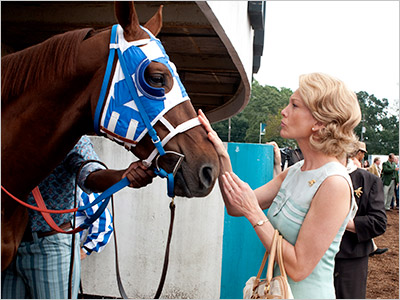
Her pluck was, in deed, exemplary. (I kept thinking of Becky.) Life is much like that. Existence here on earth is highly competitive. We either play it by adjusting to God's rules or else we fight against them. The problem with the movie is that it falsely supposes that life merely consists of being born, winning big (if possible), and enduring hardship (if necessary). Sadly, the landscape of human existence is littered with the pieces of lives broken by the lies of the devil and by the blows of bitter disappointment. Disney had an orientation in making this film, and it clearly was not to promote the race described in Heb. 12:1-2. There is nothing unusual about a story of human courage, even one as pleasant to watch as Secretariat. Plenty of people think they can win big in the game of life. Even some of Jesus' disciples thought they could make reservations for top positions in glory. Jesus' response was straightforward: the seating arrangement is in the Father's hands, not yours.
Still, I must confess that I resonated with the overriding theme of the film -- good old-fashioned tenacity. I thought of the way the apostle Paul beat his body so that he could win the prize set before him. He chose a goal that was unattainable in its perfection, yet he never became complacent as a result. How admirable. Yet in Secretariat the means became the end (happiness = winning the Triple Crown). I suppose many a Christian thinks that life is to be lived for similar ephemeral pursuits. I once did, and still do, I suppose, to a certain degree. What a tragic thing to feverishly work for something that really doesn't matter in the light of eternity.

We believers in Jesus are not promised prosperity or popularity in exchange for being a Christian. In fact, the opposite may well be God's gifts to us.
In the movie, Diane Lane was a dreamer. I admire that. All Christians should dream big dreams. But life is meaningless nonsense until God gives us sight. And even then, things do not always turn out in storybook fashion with happy endings. Yet despite the confusion of life -- and right now I am facing several confusing issues -- I know that one day all of my enigmas will be cleared up either when I grow up or when I "go up." And for that I say: Thanks be unto God.
1:11 PM My sympathies to the students and faculty at the Virginia Theological Seminary.
12:26 PM Beginning Greek students: As you prepare for your quiz over lesson 8, may I remind you that responsibility is the very essence of stewardship. Do not ask to be a steward of something unless you are willing to be responsible for it. You have been asked to be good stewards of your learning. The plea of inability or unfitness is an insufficient excuse. Humility serves us falsely when it leads us to shrink from responsibility. I expect you to work to the very best of your God-given abilities and then leave the results in His hands. And I am here to help you in any way I can.
Below: I will forever be grateful to God for the opportunity to teach 6 weeks of beginning Greek in Addis Ababa to a group of outstanding students at the Evangelical Theological College back in June of 2005. It was here that our Greek DVDs were filmed. I tell you, my audience was alive!
Here's a sample from that DVD set.
12:04 PM As most everyone knows by now, my latest book is called Why Four Gospels? I am pleased that it has been re-issued in its second edition. If this book helps you to be a wiser and more obedient Christian, then my effort will have been more than amply rewarded. Here I wish to make something perfectly clear if I haven't done so already. I lay no claim to omniscience or perfection. Nor do I wish to give the impression of finality. There will probably never be a completely satisfactory explanation to the synoptic problem. Anyone who claims to present to his or her readers "The Final Secret of the Origins of the Gospels" is either a charlatan or self-deceived. I want to stress that my work calls for reflection as much as it does for judgment, as a good book should. I also hope that it brings my readers enjoyment, as a good book should. If, in your mind, it raises more questions than it answers, I will consider this still to be a highly satisfactory response!
A special word of thanks to Mr. Henry Neufeld of Energion Publications. He has done a superb job of bringing the book to final release. I am greatly indebted to him. Thank you, Henry.
11:42 AM Please join us in praying today for our clinic staff at the Galana Health Center, and especially for chaplain Solomon as he shares the Word of life with visitors. I could tell you many reports of "miracles" that have taken place at the clinic in terms of physical healing, but their significance only begins there. In the Gospels, miracles never stand on their own. They are intended to point away from themselves to the earth-shattering news of the empty tomb. This is perhaps one of the reasons the synoptic Gospels do not mention the raising of Lazarus from the dead. Perhaps the writers felt it might obscure their primary focus in writing, the passion and resurrection of Jesus Christ. Here endeth the theological lesson! -- but my point remains that the role of humanitarian in the work of the Gospel must always be understood in terms of building the kingdom and not establishing a panacea for all human ills.
FYI: Here's brother Solomon sharing the love of Christ with patients at the Kale Heywet Galana Health Center in Burji, Ethiopia. I know of no one who loves the people of Galana more than he does.
And, in case you're wondering about such matters, here's our philosophy about the role of humanitarian aid in the work of the kingdom.
11:14 AM Keep your eyes on Sudan. The referendum in January will determine the fate of this neighbor to Ethiopia (hence my keen interest). War is certainly a possibility, as this featured piece over at the Washington Post asserts. The US is playing a major role in negotiations and is worried. I think we can all agree that these "concerns" are understandable.
10:55 AM Good news! Becky's bloodwork came back yesterday and it looks great. Next stop: UNC for a CT scan. Speaking of Bec, this afternoon I'm taking her out to see Secretariat, then to dinner at our favorite hole-in-the-wall seafood joint. Even more remarkably, I'm refraining here from waxing elephant about the horses in my life and what they've meant to me. Freedom of expression does have its limitations. (Just ask Juan Williams.) Oh, by the way, Secretariat was NOT a Christian!
Another by the way: Here's my Traveler.
And here's Secretariat.

Almost identical stockings, similar coloring, same temperament I'm sure. Thoroughbreds are the acme of breeding, except for their hoofs (which tend to be brittle). Oh oh, I'm beginning to wax elephant.
9:38 AM Alvin Reid offers some good advice on childrearing in his latest essay called The Best Parenting Advice Ever.
One quibble: It takes a grindstone to sharpen an axe. The real proving ground of character is this old world of ours. A generation bred on entertainment wants to be amused. They sometimes look to the church to put on a "good show" for them. What a time for the church to be drunk with her "amusements" when she can and must sell everything she has and give it away to the poor. That is perhaps an exaggeration but not by much. I don't want to see the current generation going to church. I want to see them penetrating the hard places of the world because that is what Jesus would do if He were here.
9:23 AM Good Saturday morning to you from this side of blogdom (or "not-quite-a-blog" blogdom, as the case may be LOL!). I once had a student in California who would refer to a certain church in Orange County as the "Windex Cathedral."

The perjoration was not lost on us. My own experience has taught me that I can't pull myself up by my own bootstraps. I can't just grin and bear it. "Think positively!" is jaded by reality. Bootstraps break and the "silver lining" philosophy turns out to be aluminum foil. Listening to "feel good theology" (or to what James Packer once called "Hot Tub Religion") disorients us. The reason is simple enough. God's means of making us stronger and stronger is not through the power of positive thinking but rather through making us weaker and weaker until the divine power alone is seen in our lives. I don't know about you, but I'm attracted to fleshly teaching that exalts my supposed natural goodness and ability. Emotionally, I want to be positive. But the truth is that my emotions are like quick sand. Trouble comes to even the happiest Christian in bucketsful (is that even a word?). Our Crystal Cathedrals eventually sink in the mire of biblical truth. Is it any wonder that Scripture demands that we trust only in God? "Rejoice (only) in the Lord!" writes Paul. Rejoice in anything else and the house of cards is sure to come crashing down around you like the first pane of glass you broke in childhood. We Christians can sample every kind of mega-church experience that is out there and still not grow healthy and strong. In my opinion, it's far better to grow up on a restricted diet than to be a sickly specimen who has tried many delicacies and yet derived little strength from them. It is the broken-hearted Christian filled with the Spirit who has his or her hands filled with the fruits of victory.
Friday, October 22
5:08 PM Just enjoyed a walk with the dogs (and boys) and am getting ready to cook supper: creamed tuna over rice. Yummy.
3:53 PM Craig Blomberg reviews P. B. Payne's Man and Woman, One in Christ: An Exegetical and Theological Study of Paul’s Letters. If I may hijack a well-worn exhortation -- Take up and read!
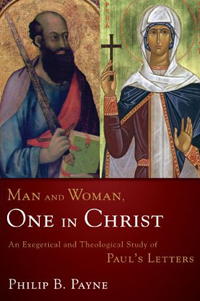
(I have to express my special delight that the author interacts with Professor Blomberg in a lengthy comment. Very commendable!)
3:31 PM Arthur Sido knows how to push people's buttons, and here he goes again, this time posting an essay called The love of money is Crystal clear. The main button this time is the fiscal irresponsibility of American congregations that run up huge debts in order to localize the worship of God in their spectacular "sanctuaries." Evangelicals who find "bigger is better" an attractive platitude will find most of Arthur's analysis irritating. So sorry.
3:25 PM Messiah College announces an opening in Christian Ministries.
3:15 PM Becky is still trying to get me an appointment with a surgeon to have my lump biopsied. It may take another week or two. To be honest, I dislike feelings of insecurity. It chokes my productivity for God. It reminds me of my un-Christian-like self-sufficiency. Can yet another thorn be in the offing? If it is, it can and must become a means of turning my pride into a sensitivity toward others. But am I up to the task? Once again I'm reminded of how much stock I place in things of temporal value. My self-esteem is based on externals. I know I shouldn't feel this way, but I often do. It's what I know, what I write, what I accomplish, the good health I enjoy that establishes my sense of worth. But God wants me to base my esteem and worth in my relationship with Him. Is God worthy of my uncompromising allegiance even if He should take my health away? Paul affirmed God's sovereignty in the midst of his sufferings. I love him for it. He's my hero. I mean, it hurt Paul to follow Jesus. The pain was real. Yet he says, "Don't pity me. God's grace is enough for me in the midst of pain." Likewise, I'm glad to know that God's not finished with me yet. He cares enough for me to continue to shape me and stretch me. His goal is to make me "useful for the Master and prepared to do any good work" (2 Tim. 2:21). So Dave, get up off your duff. Resign from your pity party. God is your protector and provider. He has you in a place where you can be usable in His kingdom -- if you'll let Him.
12:20 PM Bad sinus headache. Reminder of my finitude!
12:07 PM It is God's prerogative to realign our lives to bring more glory and praise to His name.
11:54 AM Just took the boys to Food Lion to buy some frozen pizza for lunch and to rent a carpet shampooer for Becky. We got the pizza but forgot the shampooer. Go figure -- we are males.
9:44 AM Right now I'm working with some students who are facing challenging issues. Events in life flow like an unending stream. No sooner is one situation handled then another pops up to take its place. Life is so elusive at times, so illogical. Relationships cannot be reduced to a scientific formula or factored like a mathematical problem. How I need to spend time in prayer for my students and their families.
9:37 AM Becky and I received a wonderful email about Thomas, the youngest Ethiopian team member to travel with us to Burji (along with his mom and dad). This week Thomas gave a presentation of his trip at his public school and did a fantastic job. Keep in mind that he was only 7 years old when he served the Lord in this faraway country.
At the age of 12 Jesus told His parents, "Didn't you know I had to be about my Father's business?" (Luke 2:49). Christ didn't wait until He was old to dedicate His life to the kingdom of God or to embody what He Himself taught: "Seek first the kingdom of God and His righteousness" (Matt. 6:33). Parents, are you teaching your children that Christ's kingdom "is not of this world" (John 18:36)? It's never too early to begin.
7:40 AM Too much bleakness in the news? Well, this email I just received will cheer you up. The essay posted at BP is well worth reading.
Hello Dr. Black, I remembered when you would pray for us in class and would ask the LORD to make us "winsome and attractive for the gospel" and after seeing this article at Baptist Press I wanted to send it to you.
http://www.bpnews.net/bpnews.asp?id=33918&ref=BPNews-RSSFeed1021
God Bless you and your wife.
7:35 AM Thomas Hudgins has done us all a great service by providing a list of Greek grammars currently available in French. I am both humbled and pleased that Thomas has decided to translate my beginning grammar into . So grateful for co-laborers like him and his dear wife Lesly.
Thursday, October 21
8:48 PM Tonight we had a first on the farm. Caleb made the raisin muffins all by himself, from beginning to end. That's quite an accomplishment. I think everyone was well-pleased, including his brothers.
8:24 PM Nijay Gupta is excited about his work on Philippians. His emphasis on the theme of unity is spot on. In my Novum Testamentum article on the discourse structure of Philippians I came to the same conclusion. However, the unity of which Paul speaks in Philippians is not unity for unity sake. It is unity in the cause of the Gospel. It creates a selfless community that is willingly to sacrifice everything (except for unity!) to share the life-giving message with others. I would suggest that we cannot speak simply of unity and leave it there. We need to flesh out this theme by working cooperatively with other believers in world evangelization.
2:52 PM Bloggers take note! Henry Neufeld of Energion Publications writes:
The second edition of Dr. David Alan Black’s book Why Four Gospels? has been released. We expect to ship all pre-ordered copies by the end of the day tomorrow, and we’re waiting for Amazon.com to show “In Stock.” (Note: If you see the 1 to 2 months note there, be assured that the books are in the pipeline and it will be much less than 1-2 months–more like a day or so.)
We at Energion Publications are looking forward to good things from this second edition. In particular we hope that we can market it to many readers from mainline churches who may not have considered its thesis, that the gospels were written early, starting with Matthew.
We especially encourage bibliobloggers to request free review copies. We don’t ask for favorable reviews. We love to get them, of course, but we won’t put any pressure on you about what you say. What we’d like to see is a strong debate, enhanced by this valuable little volume.
So if you want a review copy, e-mail pubs@energion.com and let us know where you will review it and where to send the book.
2:10 PM One cannot be a true believer in Jesus who doesn't also follow Him in obedience and love.
1:22 PM One New Testament scholar is trying to Place Ephesians. The data he mentions (e.g., the absence of "in Ephesus" in 1:1 in some early Greek witnesses, as well as the absence of personal greetings at the conclusion of the letter) are clear enough, but they can be variously interpreted. I hope we do not overlook the fact that Romans has more personal greetings than any other of Paul's writings yet Rome was a church Paul had never visited personally. The principle seems to be the following: The better Paul knew a church the fewer personal greetings he included, and the less Paul knew a church the more personal greetings he attached in the conclusion. As for why a scribe might want to omit the words "in Ephesus" if they were original, the answer is found in the "Problem of Particularity," as noted many years ago by several different scholars. By mechanically excising the place designation one transforms Paul's "particular" letter into an encyclical epistle intended to be read by all Christians everywhere. It is fascinating to note that the three most widely read Pauline epistles in the ancient church (Romans, 1 Corinthians, and Ephesians) all have had their place designations tampered with by copyists. (For more, see Nils A. Dahl, "The Particularity of the Pauline Epistles as a Problem in the Ancient Church," in Neotestamentica et Patristica: Freundesgabe Berm Professor Dr. Oscar Cullmann zu Seinem 60. Geburtstag Ueberreicht, ed. W.C. van Unnik [Leiden: Brill, 1962] 261-71.)
No doubt this is a vexing issue of New Testament interpretation. For what it's worth, I've tried to cut through the underbrush in my essay The Peculiarities of Ephesians and the Ephesian Address (.pdf). I would add just one more thing here. Looming unmistakably in the background of the problem is what I consider to be an over-allegiance to the so-called Critical Text (viz., the UBSGNT/NA editions) and what my friend Keith Elliott has referred to as "the hypnotic effect of Aleph and B." If you ask me, this is the nub of the matter and hardly extraneous to the discussion. Of course some hardly recognize that reasoned eclecticism allows for these venerated manuscripts to be wrong in places (see, e.g., the variant in John 10:18).
12:38 PM Ecclesiology can only be true when proper place is given to the doctrine of the priesthood of all believers.
12:13 PM Like you, I've seen some snide comments about Calvinism, but I'm not inclined to defend a system (unless it's Christian Archy, of course!). Don't you just love it, then, when someone pokes fun at both sides of the debate? Read Allan Bevere's latest post if you're interested in the details. It's called Amazing Grace ... Theologically Twisted.
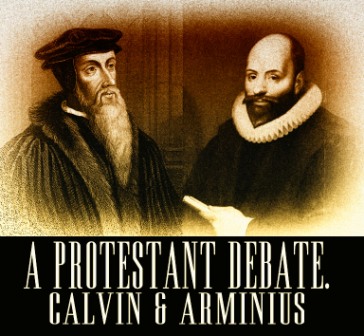
12:05 PM Catch this nifty quote from my assistant Andy Bowden:
I’m a student and my studies regularly afford me the opportunity to dig into the Scriptures. And there will probably come a day when my official studies are finished. But when that happens I will by no means be an expert. The big challenge will be applying to my life all those things I’ve learned and actually using it. And that doesn’t have to happen when I’m done with school or until the “baby” comes. I can begin to apply the lessons daily to my life. Lessons need not remain theory, God calls me to be transformed by the things I’m learning both from class and from daily life. Experts who have officially completed class are not needed, God is looking for doers who follow him today.
The piece is titled, nicely enough, Birthing Expert.
12:03 PM I enjoyed reading the latest foray by Alan Knox into ecclesiology. It is a fascinating story. Read it at your own risk!
12:00 PM Greek students: Here's a great book announcement!
7:59 AM So just who are all these handsome New Testament profs assembled in Wake Forest?
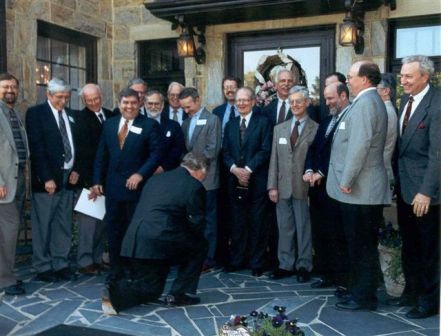
From left to right: David Lanier, Grant Osborne, Keith Elliott, David Allen, Moises Silva, Maurice Robinsons, Simon Kistemaker, Michael Holmes, Craig Blomberg, William Farmer, yours truly, Eldon Jay Epp, George Guthrie, Darrell Bock, Scot McKnight, David Beck, and Gerald Cowen. Can't wait to do something like this again on campus. Lots of iron sharpening iron!
7:44 AM Our latest book is now available for purchase at Amazon.
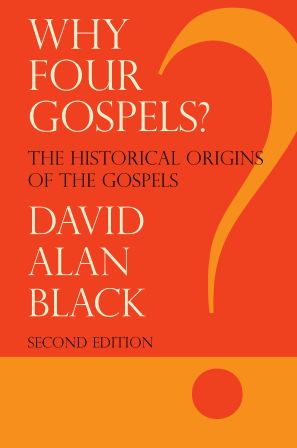
7:40 AM The papers on New Testament criticism at this year's Atlanta SBL meeting have been assembled here. It's an excellent line-up. I think Randall Buth's presentation would be especially interesting.
7:36 AM Check out this definition of ekklesia:
So I went to my favorite word study book, Mounce's Complete Expository Dictionary (i.e., shameless plug), and am reminded that etymologically (and its etymology is still valid) the ekklesia is the community of believers who have been "called out" of the world to belong to King Jesus.
Is this a case of "etymologizing"? What do you think?
7:32 AM I failed to mention yesterday another very fine tool for reviewing one's Greek, and that is Rod Decker's Koine Greek Reader, published by Kregel. Rod's blog is also extremely helpful. Here's but one example.
7:25 AM Birthday greetings to Gerhard von Rad, who was born on this day in 1901. The University of Heidelberg, where he taught, has this remembrance, a portion of which follows. Disagree as one might with von Rad's theology, one has to admire his courage.
Im Rahmen der Widerstandsbewegung "Bekennende Kirche" und darüber hinaus hielt der junge Theologe mutige Vorträge, veröffentlichte kritische Aufsätze, predigte im illegalen Kirchensaal der Lutherischen Bekenntnisgemeinschaft in Jena und bestärkte seine Studenten in der Opposition gegen das Naziregime. Trotz Herzleidens wurde er noch im Spätsommer 1944 eingezogen und zum LKW-Fahrer ausgebildet. Frau und Tochter mussten aus dem zerbombten Jena nach Süddeutschland evakuiert werden. Die schlimme Zeit in amerikanischer Kriegsgefangenschaft, in die von Rad April 1945 für ein Vierteljahr geriet, ist ihm als "Dimension wirklicher Gottverlassenheit" noch Jahre später in nur allzu lebendiger Erinnerung geblieben.
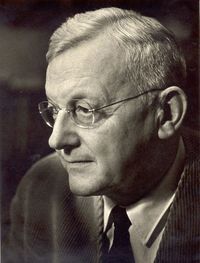
7:20 AM There seems to be some disagreement among my colleagues about the use of Twitter in the classroom. Some are shocked that anyone would send out tweets during their lectures. One even told me that he bans the use of social media during class time. Yet another colleague of mine tweets during chapel. I think the debate is a healthy one. I definitely tend to side with Christian liberty (and responsibility!) on this one.
7:13 AM Thought for the day (Dietrich Bonhoeffer):
Each morning is a new beginning of our life. Each day is a finished whole. The present day marks the boundary of our cares and concerns. It is long enough to find God or lose Him, to keep faith or fall into disgrace.
7:10 AM Looking forward to a quiet day today beginning with taking Becky out to Denny's for breakfast.
7:02 AM New essay up at DBO on the persecuted church. It's called Why Persecution Is a Blessing.
Wednesday, October 20
7:06 PM So you're studying New Testament Greek and finding it a bit of a challenge. A lot of people don't stick with it. "I tried learning Greek and it didn't work for me." The problem with these people may just be that they never learned persistence. Do you want to master the Greek language and be able to use it in your walk with God and in your service for Him? If you do, you will have to put forth some effort. How can we "stick with it" in a practical sense?
One aspect of persistence is spending time in your Greek New Testament every day. Notice, I said spend time. It's an investment, a conscious choice on your part. Don't wait for it to just happen. Make time in the Greek text an indispensable part of your day. I do, and I never fail to benefit from it. If you need to, use any help that is out there, including interlinears. Yes, I said interlinears – which are usually considered anathema to Greek teachers. But if an interlinear can get you into the text, it’s worth the effort. As one preacher put it, "Halitosis is better than no breath at all." Amen!
Second, take time to pray. Ask God to help you. For many Greek students, things go well for a few weeks. But as soon as a little difficulty comes their way they say, "Forget it. This is impossible." That's when you need to go to God in prayer. John wrote, "This is the confidence that we have in Him, that if we ask anything according to His will we know that we have the petitions we have asked of Him" (1 John 5:14-15). Prayer is your lifeline to God and your only source of strength. Take advantage of it.
Third, those who want to master the Greek language must grow constantly in their knowledge of grammar. If you’ve already had a year of Greek but are floundering, why not pick up a good intermediate textbook and begin reviewing your paradigms and syntax? Dan Wallace's Greek Grammar Beyond the Basics is excellent for this purpose. Others find my It's Still Greek to Me helpful. If you're going to master Greek you're going to have become a perpetual student of the language. I'm sorry, but there aren't any shortcuts, no easy solutions. We can't skip a grade or two.
Fourth, to master Greek means to be patient with yourself. You put one foot in front of the other. It's a steady gait, not a foot race. As I said above, the only way to get the job done is to stick with it.
Finally, let me suggest that you teach others what you're learning. It's often been said that the best way to learn something is by teaching it. This can make all the difference. It's interesting that my best students tend to be those who are teaching Greek to others, whether in their small group fellowships or to their children at home or in their Sunday School classes. Last year I taught beginning Greek in my local church every Monday night for a year. We started out with 55 students and finished with six. At times I almost decided to give up. It's at times like these that I have to ask myself, "Who am I serving? Am I doing this for God or for me?" The Bible says, "Let us not grow weary while doing what is good, because at the right time we will reap a harvest if we do not lose heart" (Gal. 6:9). I'm so proud of those six students who finished the course, who ran the race to the end. I'm also deeply appreciative of the efforts of those who had to drop out along the way, some for serious medical problems. (My wife Becky, one of my very best students, had to leave the course because of her surgery and chemotherapy).
I know that Greek can be tough. If anyone ever experienced a sinking feeling while studying this language, it was me. I dropped out of my beginning Greek class at Biola after only three weeks! Thankfully I went on to take Moody Bible Institute's correspondence course and, by God's grace, aced it. Remember what Peter's problem was when he was walking on the water? He took his eyes off the Lord. And that just about says it all.
Link.
6:55 PM Lots of openings to report today:
-
Arkansas Baptist College: Religious Studies and Christian Leadership.
-
Spring Arbor University: Theology/Philosophy.
-
Azusa Pacific University: Biblical Studies.
-
East Stroudsburg University: Religious Studies.
-
Emory University: Early Christianity.
-
LeTourneau University: Old Testament.
-
University of Durham: New Testament.
Monday, October 18
9:36 PM Becky's treatment today went wonderfully well. We've scheduled her CT scan for two weeks from today. That will tell us plenty. While B was in the infusion room I was in the ED having a suspicious lump checked out. After 6 hours and a sonogram they still couldn't figure out what it was, so I'll be seeing a surgeon as soon as we can schedule an appointment. Wouldn't that be something if the Lord allowed both of us to be ill at the same time?
So how to pray? Just as Jesus taught us. He obviously believed in the prayer of petition. This is in strong contrast to the Greeks and Romans who considered it useless and even offensive to ask God for anything (surely no one can inform God of anything or change His mind!). In Jesus' view, humans are dependent creatures, and God is a wonderful Father in heaven who delights for them to ask Him to meet their needs. Jesus' own prayer in Gethsemane exemplifies the prayer of petition. He asked for two things, first that God might free Him from the fate that awaited Him, but secondly that God's will would be done in His life. This is how I've been praying for Becky and for a good many other people as well. In the first place there is the setting forth of the need, and in the second place (and ranking above the first in order of importance) there is the desire that God's will and God's will alone be done. I dare not pray for one without praying for the other. Jesus reminded us, repeating the words of Isaiah, that God does not want the words of our lips while our hearts are far from Him (Isa. 29:13; Mark 7:6). Prayer, then, does no more than discover God as the source and the goal of all our actions.
When we arrived home tonight (much later than we had anticipated) Matt and Liz had a wonderful Ethiopian supper awaiting us. I am so stuffed I can hardly type. What a kind symbol of their love, and one for which we are both deeply grateful.
Tomorrow it's back to school. I'm also been working on an essay for the upcoming Persecution Sunday (Nov. 14). That's in addition to trying to finish up Paul, Apostle of Weakness plus my brief essay on Mitsuo Fuchida, the "Angel of Pearl Harbor." So little time, so much to do. Tempus fidgets, as the Latins would say.
Peace,
Dave
8:38 AM As brother Jason was teaching through Acts 17 yesterday, I jumped ahead (sorry Jase!) and read into chapter 18. I came across the expression in Acts 18:1 that said, "After this, Paul departed from Athens." I noticed that the verb here is in the passive voice and, if used passively, would carry the idea that "Paul was separated from Athens." This seems to be a case of what grammarians call the "divine passive" -- that is, Paul was separated by God from Athens. Clearly, Paul had felt led by God to leave the city behind and move on to Corinth. And there is nothing in the record of Acts to indicate that he ever returned.
Becky and I love Ethiopia, with all its dirt and disorganization and disease. And, as you know, that love persists even now. It seems almost inconceivable that we should minister anywhere else together. The chief joy of the early years of our work there was not in organizing this or that ministry but in coming to know and love the people who were more or less surviving the deprivations of a government that cared very little for its own poor. Somehow we felt very much at home in faraway Burji or in Malaria-ridden Alaba, with all of its terrorists and Muslim fanatics. We felt no fear wandering the streets. God was with us in a special way. At first we knew next to nothing about the churches there or their stresses and temptations. Ignorance was a form of bliss. Now we seem to understand the harsh realties -- much like a married couple comes to know each other's faults. The amazing thing about it was that in Ethiopia we found imaginative, courageous Christians. They were intensely loyal to us and were willing to work with us tackling all kinds of problems. When I think back over the past 7 years and our fantastically varied involvements -- teaching, constructing church meeting places, doing open air evangelism, developing the health clinic -- I realize afresh how it could never have happened unless the local churches had really been present -- a band of "earthen vessels, to show that the transcendent power belongs to God and not to us" (2 Cor. 4:7-8). In such a community of saints one can dare to believe that the nature of God is basically benevolent -- He both loves and is love. To experience that love is to experience grace, to know that you are more blessed than you deserve to be. It is to learn what is of ultimate importance in life (serving). It is to give and receive gifts -- to pass the grace on, so to speak.
And so, last June, "we left Ethiopia," or, better "We were separated by God from Ethiopia." For Becky, the separation is probably permanent. It is a liberating discovery to realize that whatever we do or wherever we go, people are much the same everywhere. We share the same joys and pleasures, the same sorrows and unbearable separations. There is always a certain level of instability in the Christian life. But there are also certain things about which we can be absolutely certain. Becky and I will never cease to love Ethiopia. We will never cease to be thankful that God granted us the incredible privilege of serving Him together in that place. Above all, we will never cease to believe that "Jesus is Lord," and we will always be grateful that God granted us the opportunity of making our lives conform to that belief.
Every day that comes to us is an opportunity to render service to our fellow man, and thus to take one step closer to God. Every day is an opportunity to love the One who loves the whole world and who desires to bring the whole world -- including every tribe in Ethiopia -- to Himself. There is comfort in that thought. There is also comfort in knowing that if we accept our sorrows and separations in trust, they can only add grace notes to life.
7:26 AM For students in both my LXX and Hebrews classes this semester, this Google book will come as a welcome addition to your bookmarks: The Role of the Septuagint in Hebrews. It is written by my good friend and colleague Radu Gheorgita, who teaches at Midwestern Seminary in Kansas City. He argues persuasively for septuagintal theology in the book of Hebrews. His discussion of Hab. 2:4 in particular will intrigue anyone who, like myself, is open to the possibility of Pauline authorship. Incidentally, I am greatly indebted to Radu for serving as my translator during a lectureship in Romania (his native land and partly mine -- my mother was Romanian) in 2007.
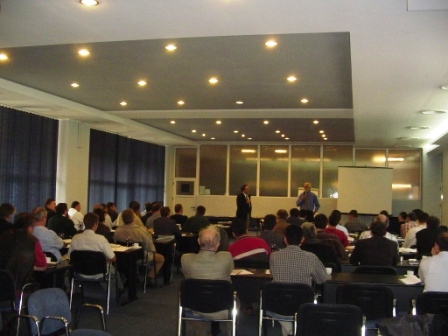
We spent a week together traveling from Oradea to Bucharest speaking to groups of pastors and pastors-in-the-making. Radu, who has a Ph.D. from Cambridge, is well known on campus for his amazing ability to commit large portions of the Greek New Testament to memory. I best remember him for his practical jokes!
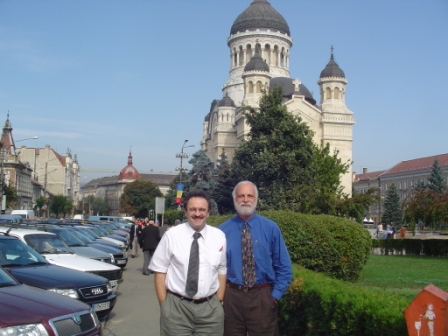
6:12 AM Speaking of tithing (i.e., tenth-ing), check out Jim's look at the Top 10 for 10-10-10.

6:02 AM Eric is at it again, stretching our minds by discussing ideas that many residents of cyberspace would find incomprehensible if not downright seditious. Ever the student, he asks some serious questions about tithing. If that isn't enough to ruin a man's reputation! Read Sproul Asks the Wrong Question.
5:48 AM New essay at DBO: Grades and the Gospel.
5:05 AM Just sent Becky and Liz on their way to Houston, with much love and prayer. I already miss them.
Sunday, October 17
7:15 PM LXX students: You will want to read Andrew Kulikovsky's review of John Sailhamer's Genesis Unbound. He concludes:
While there are some things in this book we can agree with, there are many more things, such as those outlined above, where we must disagree. The basic thesis is fatally flawed, and it appears that the only things which Sailhamer has ‘unbound’ are the rules of grammar, the semantic fields of words and the laws of logic.
We discussed many of these issues in class when translating Genesis 1. Is this review too severe? Read it, then decide for yourself.
6:38 PM Matthew's making omelets for supper. Seems we have eggs coming out of our ears.
6:10 PM "Nothin' could be fina than to be near Carolina in the evening!"
4:59 PM My thanks to a reader who emailed me this week with a typo he found in my beginning Greek grammar. Always appreciated. My books are impeccable but not infallible LOL!
4:38 PM This morning while driving to Bethel Hill I was listening to our classical music station and happened to hear one of my favorite recordings of Ave Verum Corpus. My mind flashed back to my first year of college. I was a music major at the University of Hawaii's West Campus that overlooked the North Loch of Pearl Harbor.

There I would sit in the school's music lab and listen to medieval Gregorian chants in Latin while watching aircraft carriers and destroyers negotiate the narrow channel of the famous harbor. What a study in contrasts. At the time I was taking courses in piano, music theory, and trumpet while singing in the university chorale. I had no idea that one day I would actually be using Latin as a research language and be living far from my boyhood home on Oahu. Still, even in those youthful days (I was only 18), when I had my entire life ahead of me, I somehow sensed that life for me would take a different turn. The surfer would one day go on to bigger and better pursuits in life, and might even end up on the Big Big Island (which is what we called the mainland). Is it just me, or is God causing me to reflect on my ancient past in order to appreciate more and more His blessings of the present? I don't know. It may just be the premature onset of world weariness. Whatever it is, I think I can understand much better today than way back then what the great British writer Malcolm Muggeridge said as he approached the winter of his life. Read his words and see if you do not also resonate with their message:
I suppose, regard myself, or pass for being, a relatively successful man. People occasionally stare at me in the streets—that's fame. I can fairly easily earn enough to qualify for admission to the higher slopes of the Inland Revenue—that's success. Furnished with money and a little fame even the elderly, if they care to, may partake of trendy diversions—that's pleasure. It might happen once in a while that something I said or wrote was sufficiently heeded for me to persuade myself that it represented a serious impact on our time—that's fulfilment. Yet I say to you, and I beg you to believe me, multiply these tiny triumphs by a million, add them all together, and they are nothing—less than nothing, a positive impediment—measured against one draught of that living water Christ offers to the spiritually thirsty, irrespective of who or what they are.
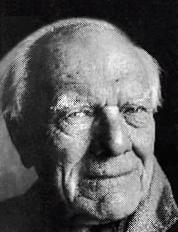
4:04 PM Tomorrow morning, if Becky is feeling up to it (she has some sinus issues right now; hopefully it's not a head cold) we'll go to UNC where she will have her third Adria treatment. Last week's trip to Houston confirmed in our minds that our current treatment regiment is right for us. For now. A scan in about a month will tell us a lot. Is the chemo working? Are her tumors still doubling every two months? The future is hidden from us. I believe that there is a cure for Becky's type of cancer and that God knows exactly what it is. The fact is that He hasn't divulged that cure to us or to anyone else. At the end of the day, I don't have to know the cure to believe that God is still sovereign. Becky is an undeserved blessing that He has given me. He is not obligated to give her to me forever. I have no right to envy others who have been cured from cancer because God has given a grace that He has withheld from us. We remain thankful and confident, buoyed up, no doubt, by your prayers.
So onward and upward. I'll let you know how things go tomorrow, Lord willing.
1:43 PM Two brief take-aways from Jason's excellent message from Acts 17 this morning:
1) On 17:18, my NET Bible has a wonderful footnote in reference to the statement, "What does this foolish babbler want to say?" The footnote describes the babbler as "one who acquires bits and pieces of relatively extraneous information and proceeds to pass them off with pretense and show" (citing Louw and Nida, 27.19). Quite honestly, when I read that quote my mind went to the myriad of journal articles that I've read. Many of them -- many! -- could easily be described as "relatively extraneous information." Of course, reading them can be lots of fun. And I'm sure they've made their authors' C.V.s look a little more attractive. (Publish or perish!) But earnestness is not unction. Centuries ago the church got the mistaken notion that the City of God was to be constructed out of education. Alas, we have fared badly with our cities. No, I'm not opposed to publishing journal articles. I've published quite a few myself, and I always encourage my doctoral students to do the same. But wood, hay, and stubble can be dressed up these days and made to look like durable building materials. So, reader beware! Paul's message on Mars Hill ended up being anything but extraneous information. But you get what you pay for. Friends, watch out for "scholarship" that is nothing but scholars wearing themselves out trying to keep up with the world.
2) Jason noted, very appropriately I thought, that when Paul came to Athens he was anything but a tourist. The only thing he saw was the spiritual plight of the people. His heart "was vexed" within him. How unlike so many of us when we visit famous places. I'll be the first to admit that when I first saw the Acropolis and the Parthenon I was swept away by their beauty.

To finally be in Athens! What an experience! But Paul was no tourist, and, I have to admit, I'm beginning to be less and less interested in human monuments that will pass away. Wherever we travel these days, I urge all of us to see what Paul saw: the desperate condition of men and women, boys and girls without a Savior. Sure, they had an "unknown God" and many others besides. But they didn't have Jesus. And there are billions of them out there waiting for us to tell them.
A final thought. I just learned this morning that the Person County Jail in Roxboro has a women's' Bible study every Wednesday and Thursday night but (apparently) nothing comparable for the men folk. My heart was pricked when I heard that. This week I'll be checking into seeing what I can do to help out, keeping Heb. 13:3 in mind. After all, much of Barth's best work was first written as a sermon to be preached in the Basel jail!
9:18 AM Here's something to think about on this fine Sunday morning. In Ethiopia, many Muslims are coming to faith in Christ through visions of the risen Savior. We know, because Becky has interviewed several of them personally. Yet I do not know of a single instance where the risen Jesus told them the Gospel. Instead, God has chosen to use frail, flawed humans to communicate His message of salvation. It seems to me that angels would have been much better suited to the task than us. But the fact is: God works through people. We are the only Bible some people will ever read. We are the only sermon they will ever hear. It is we who have the great privilege of "holding forth the life-giving Word" (Phil 2:16) for others to see and hear. It is a mystery to me that God has chosen people to communicate His Gospel. And not just others. I'm called to be salt and light. I'm to be actively involved. And it's time I started acting like it.
Is it too stupid a question to ask what might an effective missionary look like? Are they always heroes, well-known speakers, authors, heads of organizations? We might draw that conclusion because these are the roles that tend to be the model we hoist up before each other as worthy of emulation. I love our chapel speakers. But just once I'd like to listen to an "ordinary" speaker -- someone whose life is dull and routine, who is coping with low income or trying to keep a job or is concerned about retirement. Perhaps we do not adequately visualize what the Lord meant when He said, "If anyone wants to follow Me...." If you are one of Christ's sheep, you can learn to follow Him. God does indeed use "common" people to speak to others; we simply must learn to obey. Don't abdicate your responsibility; accept His offer!
Saturday, October 16
5:59 PM Jody Neufeld's thoughts on divorce are well worth reading.
5:53 PM In the genius of the Gospel, believers experience a unity that transcends all manmade boxes. We become blind to social distinctions. We welcome interdependence. We serve each other as though we were all playing on the same athletic "team" or singing in the same musical "group." I thought of this the other day while listening to one of my favorite 70s musical groups.

Chicago was known as the "band without a leader." Nobody seemed to scramble for highest honors. You never knew when Peter or Robert or Terry was going to sing lead. And who remembers the names of the fabulous brass players? This doesn't mean that we ignore personal preferences. I preferred Lamm's voice to Cetera's. And, being a trumpet player myself, I was a huge fan of Lee Loughnane. But let's face it: Chicago was a group. A common glue seemed to hold them together. In short, they were a great band who worked hard on playing great music together. (Of course, Peter eventually went "solo"; and the band's cohesion suffered.)
The church, likewise, is a big band of nobodies from nowhere. The church has no boxes -- big or little. The kingdom goes beyond our individual gifts. We are one!
3:05 PM I've finished the fence posts, composted Becky's rose garden, and successfully negotiated a trash run. What left to do other than to take a nap?
2:42 PM On NPR this morning Scott Simon had a marvelous interview with Sam Howe Verhovek about his new book Jet Age: The Comet, the 707, and the Race to Shrink the World. The book is about the competition between Great Britain and the United States and the engineering teams from each country who were vying to design the safest and most lucrative transatlantic passenger jet. It was De Havilland versus Boeing. Turns out the Yanks won out. Although the De Havilland Comet was designed before the 707 Stratoliner, it was plagued with design flaws, flaws avoided by the engineers at Boeing. Varhovek called this the "second company advantage." It's the age-old principle: the company that first designs a product is often outdone eventually by a Johnny-come-lately that works harder and smarter.

Here's a principle I think we can apply to education. There are two dangers every teacher must avoid. The first is to think that he or she has nothing to say. The second is to think that they have the last word on any subject. They must always take great care to see that they are teaching the truth, and they must always have every care that they do not leave the impression that the topic is closed for further discussion. I see in my classrooms many of what I might call "second company students." Yes, they appreciate what I have to say; in fact, many of them have traveled miles to study with me. But no one can satisfy their curiosity. Their minds are insatiably hungry. They not only question "Q," they question the entire premise behind Markan priority. They believe it is easy to pervert the learning process and to emasculate the word "study." Moreover, they condemn profession without practice -- a condemnation with which I entirely agree. Christians may not be saved by works but they most certainly are saved for works. The one thing these "second company students" cannot stand is faith without works. For them faith and works are inseparables, not opposites, and we teachers must never get ourselves into the position where our students cannot hear what we say because they are seeing what we do.
I don't know about you, but I am eager to see what the current generation of scholars will accomplish for Christ. Let them outshine their predecessors! Let them think bigger thoughts and do greater works!
12:16 PM Beautiful day for working outdoors. Becky's weeding her garden and I'm fixing fence posts. The temperature is an ideal 70 degrees and the sun shines brightly.
12:02 PM Here's yet another good read from the pen of Eric Carpenter: Experience and an M.Div. Do Not Mean I'm Qualified to Plant a Church. You know how scandalized people get when I say degrees are really of little consequence. The fact is that they have little necessary relationship to education. In my classes I try to emphasize that schools are a means to an end, not the end. To be educated, one has to understand. As far as I can sort it out, me degrees (including my doctorate from Basel) have given me the ability to read well. The most I am willing to concede is that schools are a "supplement" to the educational process. At its best, seminary may be able to deal with a subject fragmentarily and theoretically. Life is where the lessons of history and theology are tested. I am not being flippant when I insist upon this. I am a professional educator, have been for 34 years. But there is so much to learn in life that is not even cognitive.
Friday, October 15
3:14 PM The Eisenbrauns textual criticism sale continues. Here's your chance to get two of my books at a dramatically reduced price.
3:03 PM Henry Neufeld has an announcement regarding Why Four Gospels?
2:55 PM Sebastian Schneider argues, on the basis of his exegesis of certain statements in Philo, that the expression "weak, sick, and asleep" (1 Cor. 11:30) should be taken in a metaphysical sense to refer to those in the church who were weak, sickly, and sleeping in regard to their faith. He suggests the following rendering of the verse: "Deshalb (sind) unter euch (geistlich gesehen) viele Schwache und Kranke und schlafen sogar zahlreise." See his essay "Glaubensmängel in Korinth: Eine neue Deutung der 'Schwachen, Kranken, Schlafenden' in 1 Kor 11,30," Filologia Neotestamentaria 9 (1996) 3-19.
What do you think?
2:45 PM Students, please take note: Our Student Day has been postponed from tomorrow to Saturday, November 6. I've mentioned this already in class but a reminder never hurts. So please change your calendars and do plan to attend. I'll send around a sign-up sheet starting next week.
10:10 AM "A living epistle, read by all" (2 Cor. 3:2). I love this word picture. Paul suggests that we are to allow others to turn the pages of our lives and read the fine print. The imagery points to open and honest communication. As a rule, however, we gild the covers of our lives and conceal the contents. I think this is often true of blogging. Conversely, a blog can reveal our hidden faults. The impudent tone, the look of disdain, the judgmental or superior attitude -- all these jeopardize the message, regardless of how true that message may be. On the other hand, love liberates. Everywhere in the blogosphere I see Christians who are seeking to use their words to edify others. They're not reactionary, they're not fussing over minor matters, they're not pontificating, they have a philosophy of blogging that gives them a happy freedom to seek in specific and creative ways to serve others. What it all comes down to is this: If you are a Christian blogger, your life, your teaching, your example must say, "Come, my friends, let's journey together back to what is of ultimate importance. It's time to reorient ourselves to Christ. He is worth it!" Every day I try to post what I call a "Barnabas Blog" -- calling us all to participate more freely and faithfully within the framework of the Body of Christ. I also try to link to other helpful posts. There's a principle here I believe. Keep your relationships two-way. Let other people minister to you. Are you always on the side of exhortation and correction or do you allow a brother or sister to correct you? Even in my classroom teaching I try to do this -- not only leading but being led, exposing my ignorance as well as my knowledge. This is so important!
Of course, just as no two individual Christians are alike, so no two Christian blogs will ever come out alike. My "un-blog" is really a daily diary. My more creative thoughts are generally published in linkable essays on my home page. Nor do I have comments. That would take too much of my time I'm afraid. However, if you send me an email you will receive a prompt and courteous reply. Regardless of how we blog, however, followers of Jesus will ask this question: How can we use our gifts and resources to serve God's kingdom? Honesty, mercy, compassion, truthfulness -- these are the marks of the new society that Jesus established through His blood. As "living epistles, read by all" our lives and even our blogs can undergird and support that commitment. As members of one another, we need each other's mutual care for our own spiritual well-being as well as to help us become more faithful pursuers of the upside-down ways of Jesus.
Thursday, October 14
7:58 PM The joys of front porches.
5:15 PM Just slogged through three difficult journal articles on Paul's "weakness of the flesh." Gotta work faster. The clock is ticking! Also been journaling on blogging. My thoughts later.
2:24 PM Golden Gate Baptist Theological Seminary (Brea Campus) announces an opening in Old Testament (.pdf).
9:33 AM In his book Letters to Philip, Charlie Shedd tells his son that a wife will love her husband only when she knows he is utterly dependable.
You should look her squarely in the eyes and solemnly swear: "Neither by day nor by night will I ever cut you down in company. Not before my family, your family, our family. Not before my friends, acquaintances, strangers. When you are with me or behind my back. Never by wise crack, or snide remark, or in any manner do I intend to be anything other than one hundred percent loyal!"
Has your wife ever heard those words from your mouth? Does she know she can depend on you?
Bec and I have traveled many miles together. We've spent many years together. A fellow employee at the seminary approached me the other day and said, "Dave, what I appreciate about you the most is not your scholarship but your faithfulness to Becky in the midst of your trial." Ask yourself for a moment: Would you say the same thing about yourself? I tell you, after 34 years of marriage I feel a comfort and a stability I've never realized before. I sense a level of acceptance and love I never dreamed possible. Becky and I, as we move closer to God, have moved closer to truly becoming one flesh, one mind, one heart.
As the Titanic was going down in 1912, Mr. and Mrs. Isadore Strauss stood on the deck assisting women and children into the lifeboats. Finally Mr. Strauss ordered his wife into one of the boats. She took her seat and then suddenly sprang up and hopped back on the deck before he could stop her. Taking her husband in her arms she exclaimed, "We've been long together through a great many years. We are old now. Where you go, I will go."
It is my prayer that every husband who reads these words today will make a new commitment to give his life partner the love, leadership, and loyalty she deserves. Accept her. Admire her. Appreciate her. And do it today.
9:01 AM Confessions of a social media addict.

8:36 AM Ben Witherington reviews the movie Secretariat, a flick about one of the most famous race horses that ever lived.

Along the same lines, I once published an essay called The Heart of a Secretariat. You'll never guess who it's about. Then again, maybe you will.
Wednesday, October 13
8:36 PM Our latest contest here at DBO is called "Name the New Testament Scholars." This photo was taken in front of the president's home at Southeastern Seminary during our Symposium on New Testament Studies that was held in the spring of 2000. Your job is to name the scholars before whom Dr. Patterson is bowing.

There are 17 in all, though I will have to give you the names of the two that are partially hidden: David Beck of SEBTS (second from right) and George Guthrie of Union University (fifth from right). Deadline for submissions is 9:00 EST tomorrow night. Here's a hint. The three topics discussed during the symposium were the synoptic problem, New Testament textual criticism, and the authorship of Hebrews. The blogger with the most correct answers will win a copy of Why Four Gospels? and a copy of Rethinking the Synoptic Problem, which David Beck and I co-edited for Baker Books and which contains 5 of the conference papers. In case of a tie, the earliest submission wins. Send your answers to dblack@sebts.edu. (Note: The contest winner agrees to post a brief synopsis of both books at his or her website.)
Now have at it!
7:16 PM Gordon College announces an opening in Biblical Studies.
7:12 PM Our linguistics seminar this semester has been phenomenal! It has been forcing us to reevaluate much of our thinking about such foundational subjects as textual criticism, conjectural emendation, the synoptic problem, and lexicography. Today we discussed several articles I've published in various and sundry journals:
-
"Conjectural Emendations in the Gospel of Matthew" (Novum Testamentum).
-
"Remarks on the Translation of Matthew 7:14" (Filologia Neotestamentaria).
-
"The Text of Mark 6:20" (New Testament Studies).
-
"The Text of John 3:13" (Grace Theological Journal).
-
"An Overlooked Stylistic Feature in Favor of panta in 1 John 2:20" (Filologia Neotestamentaria).
What I offer here is a new look at some very old problems. I have tried to analyze, in depth, what the evidence shows. But it's difficult. What role should internal evidence play? How much weight should one give the Majority Text? Can rhetoric inform our study of New Testament textual criticism? When I first went to seminary, questioning the status quo on many of these subjects was taboo. But as I've grown, I've become more and more aware of the parroting that commentators engage in and of the need to rethink the issues for myself. I confess that I struggle with the "group-think" that I believe characterizes much of what we call New Testament scholarship today. Just the same, I am seeing progress. The joy of watching my students interact with the data brings me tremendous hope. Wrestling with the text does not mean a sudden termination of the use of helps such as commentaries. It does not mean we arrogantly dismiss what others are saying. Rather, it is something far greater and better than most of us could imagine. I hope my students are inspired to see the text in all its beauty and perfection. I'd like to explode myths and open the text to new possibilities. It is my prayer that every one of my students will make a new commitment to work on understanding the text on his or her own, to discover the joy of self-learning. The text deserves it.
Below: Andy Bowden leading the discussion of conjectural emendations in Matthew in our class this morning.
7:08 PM How many Christian denominations are there today? The answer might surprise you. Many of our walls are self-imposed. God hasn't erected them. And, as problematic as denominationalism may be, the greater issue is the gulf that exists between believers and unbelievers. How we bridge that gulf is the key to becoming effective witnesses for Christ. There's nothing wrong with hanging out with people you agree with theologically, unless it keeps you from reaching your own town for Christ.
Think about it.
6:45 PM Excellent Bible messages in French here. I need all the help I can get with speaking this wonderful language.
6:40 PM Great to see Maurice Robinson back on campus today. See how tall he's grown?
6:33 PM The heart of the world leapt when it saw this rescue mission come to fruition.

Likewise, may God open our eyes to the reality of the billions of people who are still in need of being rescued by the Gospel of Jesus Christ. These numbers are so familiar to us that they have lost their impact. May God teach us all that the physical rescue from a mine is only temporal and conditional. May He help us see how late is the hour and desperate the plight. When was the last time you took a spiritual inventory of your life and said, "Here am I, Lord, send me"? Bless his heart, Arthur Sido has done that (you can read about it in his powerful essay Time to get off the bench). But how about you? We rejoice with unspeakable joy at the miners' rescue, but do we weep over lost souls and nations without the knowledge of God? There is no work more serious in the world than the saving of a soul. Share the Good News, in word and deed, with someone today!
6:23 PM Quote of the day (Danny Akin):
It is time for us to get serious about a Great Commission Resurgence. It is time to be "radical!" Pitiful excuses that are myopic and territorial need to cease. There needs to be genuine repentance and brokenness over a calloused heart that has grown cold to the masses who have never heard the gospel and who have no access to it. Such a movement must begin one by one with each one of us. It will begin in individual hearts. I am praying that this passion will grip my heart and soul now and until the day I stand before the Lord Jesus and give an account for the life that He gave me. I do not want to leave a wasted life. I do not believe you want to either.
Below: Banners at Binkley Chapel in celebration of our 60th anniversary. The signs say, "To serve the Church and the Great Commission." I say, "Amen."
6:13 PM Caution! The Battle of the G[r]eeks has started! And you are invited to join in the fray!
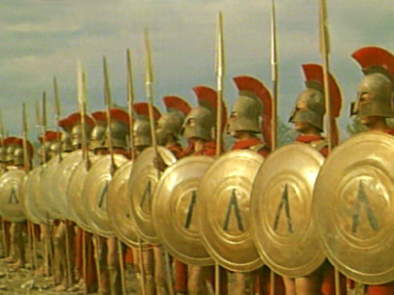
(For what it's worth, I do not claim to have written the definitive beginning Greek grammar. But I do contend that a morphological approach is helpful if not indispensable for learning Greek. That said, skin the cat – using whichever grammar or approach you like!)
Update: Read Part II.
6:02 PM Guess who's home? Becky and Liz! Although we had anticipated several days of appointments at M. D. Anderson, her meetings yesterday with the oncologists sufficed to indicate (1) that her current treatment program at UNC Hospital is the best that anyone can do for her, and (2) that there are no current cancer trials in Houston for us to consider. So the travelers have returned to their nest, and the men folk are glad indeed. On Monday next Becky will have her third (of 6) Adriamycin treatments in Chapel Hill, and once she has recovered from that she'll have her next CT scan, which should tell us whether or not her chemo treatments are working. God knows all, and we rejoice in His unfailing love.
Tuesday, October 12
6:58 AM Will be a great day on campus. Johnny Hunt in chapel, Board of Trustees as well. God has done a good work of grace in our midst these past 60 years. All glory to Him!
6:55 AM Book note: If you're a blogger and would be interested in reviewing Why Four Gospels? when it is released on the 15th of this month, please contact the publisher, Mr. Henry Neufeld, at pubs@energion.com.
6:45 AM Last night I watched some of The Black Stallion. Reminded me of the friendships I've enjoyed with my horses, my teachers. Boy do I miss them.
Monday, October 11
7:00 PM Good news! Eisenbrauns, according to the Evangelical Textual Criticism website, is having a super sale on books about -- what else? -- textual criticism. Check it out here.
6:52 PM Hmmm. Got real quiet around here a few minutes ago. Wonder why?
6:04 PM Here's a little taste of home for the lady folk. Hope you enjoy them, mom and Liz! Now it's off to bake raisin muffins for the boys. Shhh, don't tell anyone.
5:32 PM Right now my students and colleagues are having dinner on the quad celebrating SEBTS's 60th anniversary with a huge feast. Wish I could be there but someone's got to hold down the old fort.
4:48 PM Becky and Liz have arrived safely in Houston!
4:41 PM Just finished my annual self-evaluation for my faculty dean. I like the classroom but our mission isn't to draw one chalk talk after the other. Sooner or later our students have got to approach the line of scrimmage and play ball. That is becoming my focus more and more as a teacher. Perhaps it's misguided, but there you have it.
4:23 PM About time to make supper for the boys and Matt. I cooked hot dogs for lunch. Becky planned the menu before she left. So I just operate on auto pilot :)
2:22 PM The Theological German site does it again:
Θάλασσα Ουαὶ Βεγών
ὅπου
πάντες αἱ γυναικὲς ἰσχυραί
πάντες οἱ ἄνδρες καλοί
καὶ πάντα τὰ παιδία καθ᾿ ὑπερβολήν
This had me in stitches.
2:10 PM My local church is sponsoring a Red Cross blood drive this month. Sign-ups were held yesterday but of course I can't participate (I've taken too many trips to Africa, I've had malaria, etc.). But I do have a funny story to tell about donating blood. It took place many years ago in La Mirada, CA. I had just donated blood when I was taken to a small table and asked to eat a cookie and drink some fruit juice in order to replenish my blood. As I bowed my head and closed my eyes I suddenly found myself being lifted up by four strong men who forced me to lie down on a cot with reassurances that "You'll feel better after a few minutes." My protests that I was only trying to pray went totally unheeded!
1:52 PM Nijay muses about Matthew's Greek. "It is an unfortunate commonplace in classrooms of seminaries and Christian colleges to hear that Matthew improved and corrected the ugly and unintelligent Greek of Mark," he writes. A fine compliment to our classrooms, but he is right. Questions about Mark's "inferior" Greek crop up whenever I'm asked to speak on the topic of the synoptic problem. The fact is that Mark never set out to write a Gospel. He simply recorded the words of Peter viva voce as the latter gave a series of didaskalias before high-ranking officials in Rome. Oh, this is a "fact" only if you take the church fathers seriously, which most of us don't -- and which is another reason why our classrooms are failing our students. If you really want to dig into the synoptic problem, you'll find yourself struggling with uncharted territory, including patristics. But it's worth it!
1:40 PM Missing my beautiful wife!
1:22 PM Who is reaching the "up-and-outers"? Remember, the Gospel penetrated the household of the Roman Emperor himself (see Phil. 4:22). Heads of state, university presidents, prime ministers, all need Jesus. Perhaps another reason to consider getting a university doctorate over a seminary Ph.D. -- it may open more doors for you to reach the upper crust of society. May the Lord kick out the parameters of our vision.
1:15 PM Praying for my good friend Alvin Reid who speaks in chapel at Union University this Wednesday.
12:28 PM Perkins School of Theology announces openings in Christian Theology and Christian Worship.
12:23 PM Just heard from Becky and Liz. They arrived safety in Dallas but their plane "toured" the airport tarmac looking for an available gate. Right now they're grabbing a quick bite to eat before catching their flight to Houston, where they will be welcomed by Becky's mother (photo) and sister. Let's keep praying for a successful trip, as God measures success.
12:14 PM Indiana Wesleyan University announces an opening in New Testament.
11:02 AM A few discoveries I've made through the years (with a nod to Mr. Columbus, since it's his "day of discovery"):

-
The particular method of evangelism doesn't matter that much. Anything is better than the "no" method approach.
-
I need to ask God to burden my heart for people. It doesn't happen naturally.
-
To influence the masses, you must reach individuals.
-
Persuasive people live sacrificial lives.
-
There are millions of lost sheep out there. I'm sent to find them. Not all of them, but some of them.
-
Every human soul is vulnerable to prayer.
-
A happily married person is a walking miracle.
-
Anticipate difficulty. Daily.
-
There is no favoritism with God. None!
-
I need to avoid professional weaker brothers and sisters in Christ. I will never conform to their lists, so why try?
-
Repeated demonstrations of concern and love build openings for the Gospel.
-
Don't watch the clock. It may take years for someone to come to Christ.
-
If you have a conscience on some matter follow it, but don't presume that your conviction is mandatory for everyone else.
-
Remain a citizen of heaven, but become a naturalized citizen of the world in order to reach it for Christ.
-
Travel light, as the Lord commanded. It is easy to carry too much excess baggage.
-
Can you bake a cake? Somebody might find Christ through just such a gesture.
-
Evangelism begins at home but can't end there.
10:15 AM So today's a holiday and everything's closed?
9:10 AM Off to the post office and bank then changing the oil in the ride mower and draining out the fuel for the winter. Those books will have to wait.
8:36 AM Farm update:
1) B's Romanian stuffed peppers on Saturday were a smashing success.
2) On my desk today.
3) Nate has moved the herd into the horse pasture. Love to watch cattle. 2 new calves in the last month.
Fall break is over and I am eager to get back to classes!
8:20 AM Allan Bevere announces the winner to his "Caption Contest" for this hilarious photo. You can wead it hewa.
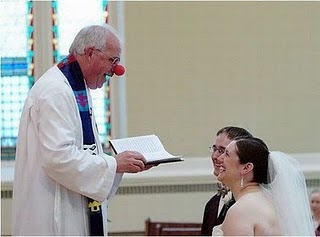
8:04 AM Tomorrow we'll be grading our first take home Greek exam of the semester. Actually, each student will be grading his or her own exam. That's pedagogically sound in my book. It makes grading a learning experience. Now, some will get As on this exam and others will not. Some will make it to the "top" of the grade list and others will not. Typically, über-achievers have worked very hard to get where they are. But this does not necessarily mean that the under-achiever hasn't. Straight A students are tempted to think, "If only they studied as hard as I did. They'd have made it too." True, there are always a few slackers in every class. But there are many other factors that may have led to the A-student's achievement -- personal motivation, language aptitude, family stability, cultural mores, etc. Hard work matters, but it is just one of several factors at work in the equation. This should help wipe away any arrogance. Sometimes a student in my classes doesn't do well not because of sloth but because of a learning disability! Everything is relative, even "smarts."

Last year I witnessed something beautiful in my beginning Greek class. The sharpest students held a weekly study hall to prepare for that week's quiz. Rather than viewing their peers as threats, they gladly invited them to participate so that together they might all work to the best of their ability. I witnessed the same attitude a few years when I was watching the Special Olympics. The children with Downs Syndrome were coming around the last turn and heading for the finish line when, suddenly, one of them tripped and fell. All the other runners stopped to help him up so that they could all finish the race together.
Students, give God all the credit and glory for anything you accomplish. Reach out toward others with sympathy and encouragement. Help the weak. Act like that and you may unnerve a good many professors. Defy social custom ("climb the ladder and forget about the rest!") and you may provoke untoward remarks from your parents. But this is Jesus' way. Rather than jockeying for status, Jesus wants us to quietly serve others. That's the kingdom way.

Sunday, October 10
8:57 PM This just in:
Dave:
I'm still smiling over the typo in your 7:42 am post today. Just how many lasses do you have that need to be attended to? LOL.
9:17 AM Greek students, just a friendly reminder that printable vocabulary cards for our beginning grammar are available here.
8:04 AM Crossroads -- the place where enormously important choices are made. That's what I sense this week will be as Becky and Liz meet with the oncologists at M.D. Anderson.

The truth is, I can't figure out what's going on. Medical science is far too complicated for my simple theologian's brain. Writing about it is an outlet for me. For one thing, it keeps me from simply internalizing all my feelings. Moreover, all of my intellectual answers are of little help because I'm facing a struggle that is not primarily intellectual but emotional. Often I'm besieged by a host of emotions that I can't explain. You, dear reader, whether you like it or not, are an invisible sounding board for me. I share my feelings with you because I hope I will be strengthened in the process, and maybe you will be too. The fact is that I need you. I need the Body of Christ to travel this road with me. I consider it a blessing from God that I have others in my life, both in cyberspace and in real space and time, whose encouragement and love have never failed me. I am convinced that God still wants to work in my life His good purposes. He is teaching me a lot about myself and about marriage. I am "paying attention" to Him as never before. I suspect that He's using current pain to prepare me for further trials in the future. It's all part of my sanctification, I guess.
Becky and Liz board their plane at RDU at 8:00 in the morning. They will be buoyed up by my prayers -- and yours I trust.
7:42 AM This comment made me smile:
I'm typing this while sitting in my 20th Century European History class, in between taking notes on anything significant the professor says. (Don't judge me, you know you're reading this on your laptop/cell phone in the middle of class.)
It's by a student in North Carolina. It's a reminder to me, not of the evils of the internet or of social media -- far from it. It's a reminder that as a teacher I had better have something important and interesting to say in classes or my students will tune me out -- as they should. I once thought that there was a difference between self-learning and group-learning. Actually, all learning is self-learning, even when we are in a classroom with 300 people in it. We listen selectively, we take notes selectively, we remember selectively. It's all self-learning. And it's a teacher's job to encourage that process to take place whether I'm teaching a class of 55 or I'm mentoring a doctoral student one-on-one.
Oh, what this student said also reminds me of why I never take attendance in my classes and why attendance is never part of a student's final grade calculation. By not forcing students to attend class you put a premium on what's important -- good teaching. If you want people to attend your lasses, make it interesting. It's as simple as that.
7:30 AM I was up early getting some writing done on my Paul book. Right now I'm checking emails. The sunrise was gorgeous. Looking forward to spending this day with Becky.
Saturday, October 9
9:10 PM B and I just watched an episode of The Waltons. Liv gets TB and has to separate from the family and her husband John. It was called "The Parting." Very touching. Parting is such sweet sorrow.
7:31 PM Well, I've taken Brian's advice and read Karrer's review of O'Brien's Hebrews commentary. Next book on my purchase list!
4:44 PM Being an ehemaliger Basler, I enjoyed this thought-provoker: What Has Basel to Do with Berlin?
4:37 PM Three from Schweitzer:
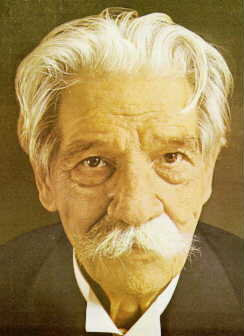
-
Example is not the main thing in influencing others. It is the only thing.
-
If a man loses his reverence for any part of life, he will lose his reverence for all of life.
-
Life becomes harder for us when we live for others, but it also becomes richer and happier.
4:27 PM The other day I saw this page referred to as "Dave Black's Un-Blog." Love it! Places me right up there with the ultimate in un-conformity.

4:19 PM Just finished a long afternoon nap. Delightful. I see Becky's making stuffed peppers for supper. Delightfuler.
1:34 PM Preface to new edition of Why Four Gospels? here.
11:36 AM Biola, where I went to college, required its students to have a "Christian service assignment." In the 1970s, in that town that took pride in calling itself The City of Angels, race relations were anything but good and Watts was a place of unrest. So that's where I decided to do my assignment. Every Saturday I went to South Central LA and played basketball with the kids there. Blacks were still very much confined to the balcony of society in those days, but sports seemed to be a universal language we all understood well. I discovered how life is enriched as you are exposed to as diverse a representation of humanity as possible. The ability to learn from people who are different from you is a characteristic, I think, of both maturity and humanity. So it is today that I delight in working among the people of Burji, Alaba, and Amhara in Ethiopia. Then, too, I often wonder what happened to those youth I played ball with over 35 years ago. Life is fleeting, and so are my opportunities to work for King Jesus. Don't you ever have that sense as well?
Below: Meet Rubens, my blind roommate for 4 years in college. He was raised in the jungles of Brazil and spoke 5 languages. He would teach me "Porkacheese" and I would teach him Hawaiian Pidgin. What oddballs we were!
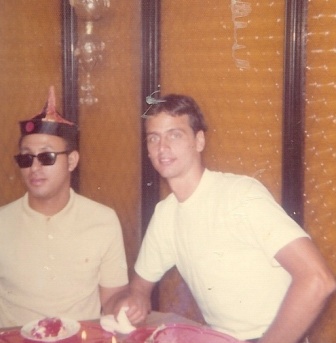
9:12 AM Not much news on this quiet Saturday morn. Oh, I see Regent University is announcing an opening in Christian History. I'm announcing an opening in loafing. I just applied. And was hired!
Friday, October 8
9:22 PM Well, Isaac is now "officially" 6 years old. We formalized the event with a celebration and birthday party tonight. Nate, Jess, and Nolan joined in the festivities.
And of course the boys couldn't wait to play with their uncle.
When we sat down at the table we were treated to an exquisite spaghetti dinner prepared by Liz.
Here Nolan is being introduced to corn on the cob. I tell you, that boy can eat!
Matt must have spent 5 hours preparing Isaac's birthday cake -- a sailing ship of impeccable proportions and color. Methinks Isaac liked it.
I think the birthday boy also enjoyed his gifts, including this surprise from his Papa B.
You could tell that Isaac was delighted by all the love and affection sent his way this evening. He is one special boy.
Afterwards it was "shark" time with Uncle Nathan. On my bed no less!
Then up the stairs they went. They snuggled into their beds and I told them a Nite Nite story -- "Henny, Jenny, and Penny and the Adventure of the Dead End Gravel Road." (The names refer to 3 chickens who always seem to find themselves in the middle of trouble.) It was a great ending to a great day. And that's that!
Mr. Blue Eyes wishes you all a very good night.
3:55 PM One of my doctoral students calls our attention to a great quote by Moises Silva. Context is king!
3:43 PM Quote of the day (Edith Schaeffer):
We all have to wait until the astonishing discoveries will one day be made, and find out whose faithful prayer in hospitals, prisons, jungles, wheelchairs, crowded city apartments, cabins in the woods, farms, factories, or concentration camps has been a part of a specific victory in snatching someone from a circle of death, or in breaking chains so that there seems to be an ease for that one in stepping into new life. I feel sure that we’ll be surprised beyond measure to discover who or how many will receive the rewards for their part in taking literally and with simple faith and trust the responsibility to intercede, to pray, to make requests day in and day out.
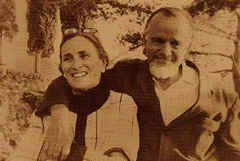
She is right. And because she is right I want to take a moment and thank all of you who have been praying for Becky. Her bloodwork came back today and all of her counts look great. This means that all systems are GO for the big trip to Houston on Monday, and it minimizes the potential for picking up an illness along the way. Again: Thank you to each and every one of you who has ever prayed for us. As Edith Schaeffer put it, may your reward in heaven be great.
3:35 PM Henry Neufeld is excited about his forthcoming publications. One of them you may not have heard about yet is by Phil Hopkins and deals with the missiology of John Piper. Phil is one of our SEBTS Ph.D. grads. Read Coming Soon from Energion Publications.
3:21 PM Just re-read John Piper's Don't Waste Your Cancer. Greatly blessed. I can tell you: Becky is definitely NOT wasting her cancer.
3:02 PM Driving + Shopping + Eating = TIRED.
11:32 AM This sounds like fun.
11:20 AM With some embarrassment and hesitation, let me share with you a crazy thought that occurred to me while writing today:
We spend a lot of time, as writers and teachers, studying the Bible so that others can keep abreast of what thoughts and ideas it contains. Wouldn't it be better, in terms of both efficiency and satisfaction, if they could do it for themselves?
Now, with a bit of irony, it's back to writing....
10:48 AM A question I sometimes ask a prospective doctoral student is: "Do you have a passport?" Christian solidarity -- this is perhaps the liberating lesson travel has taught me. It has been my experience in France, where I found hospitality in a youth hostel run by followers of Jesus after a particularly challenging experience in Paris. And in Basel -- where my professor and his wife welcomed me to stay in their home for a month while I was looking for an apartment to rent for Becky and me. And in Korea -- where during my 6 different trips there I experienced so many acts of "grace" that I cannot find another word that better describes Christianity there. Or in India -- where my translator (a pastor) and I held hands as we traveled from venue to venue (men holding hands in public is commonplace in places like India and Ethiopia). These experiences have made me impatient with all forms of ethnocentricity. None of us is free, it seems to me, until we cross national and ethnic boundaries -- and even then it is still difficult to "become all things to all people." When I was in Basel I had a truly memorable experience as I sat in a coffee house and discussed -- in German -- Barthian theology with a student from South Korea. Somehow we understood each other. And that is the way it has been over and over again. If you've traveled much, you have probably already learned a distaste for a ghetto mentality yourself.
So I ask, dear student: Do you have a passport?
Below: Teaching in an Orthodox seminary in Armenia in 2008.
Lecturing to Iranian students at Yerevan State University on the same trip to Armenia. I love traveling and the things it teaches me.
10:10 AM Justin Taylor has a good post on Evangelicals and Politics, a subject I dealt with in The Jesus Paradigm:
It is precisely this responsibility to witness and minister in the world that is avoided in our staid, bourgeois memberships, with their comfortable adjustment to laissez-faire capitalism and their unwillingness to question the political status quo. I wish we could sense how closely interwoven our religion and politics have become. For many evangelical Christians, religion has become the principal justification for political involvement. Thus everything that carries a “Christian” message is legitimized and justified in terms of political commitment. This is the new ecclesiology. No matter how biblically uninformed or banal the thought, any religious stance is legitimized thanks to the political message behind it. Has anyone failed to notice just how deeply “God-and-Country” nationalism has come to permeate American society? This is nothing but pure idolatry. I can understand our mass media allowing itself to be commandeered for propagandistic purposes. But as an evangelical who values highly the authority and inspiration of Scripture and the sole Lordship of Jesus Christ, it is disturbing to see the church co-opted by the state for the same purposes.
9:09 AM The bumper sticker reads, "When the going gets tough, the tough go shopping." Later Becky and I will run into South Boston to get some much needed shopping accomplished, have her bloodwork done at Halifax hospital, have lunch together, and who knows what else. This evening we're celebrating Isaac's 6th birthday with a big party. The weather is perfect for the occasion. Thankful for little serendipities.
8:41 AM Ramsey Michael's new commentary on John is receiving a lot of much-deserved praise in the blogosphere. His work is one of many that, I suppose, will ultimately replace the works of the past. Even mid-twentieth century commentators seem passé today. They are largely forgotten. Their sand castles are gone, washed out to sea. The tide did them in. And this makes me sad.
I once received a type-written manuscript from F. F. Bruce. It was to be published in a book I was editing at the time, the Greenlee Festschrift. Sadly, Bruce's essay was published posthumously. Bruce was one of the greatest New Testament scholars of his day. Americans flocked to Great Britain to do their doctoral studies under his tutelage. Today, when I mention his name, most of my students go, "Who?" So it is with the fleeting nature of scholarship.
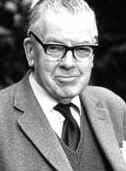
Students, wisdom awaits you in the writings of F. F. Bruce and many other scholars of a previous generation. I was delighted when one of my own doctoral students mentioned to me that he was about to consult Bo Reicke's Anchor Bible commentary for the work he is doing on 1 Peter. I smiled inwardly, thinking that my former Doktorvater would be pleased to know that he was not completely forgotten.
As an author, the question that plagues me is: Why make the effort? A slight exaggeration, of course -- but when you engage in self-pity, it's hard to be positive. In the end I simply affirm God's sovereignty in life, death, wisdom, and work. Writing forces me to say, "God, I trust you." As the plan of God stretches from age to age, saints in the past have invested their lives so that we today might take our place in the race. I am motivated when I think that I am a part of God's grand picture. I will do my part. It may not amount to much, but I will be faithful.
Thursday, October 7
8:53 PM Liz and Matt went out on a hot date tonight so yours truly cooked supper -- Chinese stir fry with five (5!) secret ingredients. Afterwards we enjoyed ice cream as we strolled through the back fields. The boys sure seem to be enjoying the farm. As idyllic as idyllic gets I suppose. Makes one grateful.
3:27 PM Just a reminder that the International Day of Prayer for the Persecuted is coming up on November 14. We at The Hill will be highlighting the persecution of Christians currently taking place in Ethiopia in areas where Becky and I have been personally engaged for years. The fact that we are usually the only white-faced foreigners who work in these areas has prompted not a few people to comment on our "courage." My usual response is that what is characterized as courage is usually the judicious application of a good hard shove from the rear. At any rate, we've seen a great deal of genuine persecution for the sake of the Gospel in Ethiopia and have learned that Jesus is worth everything we could ever offer Him. Our hands, our feet, our finances, our families, our dreams, our hopes, our very lives -- everything belongs to Him, and He is more than able to live, weep, and speak through the earthen vessels of our bodies. Satan has laid a thousand little traps to keep us from being effective for the Gospel, and one of these is fear. To me, one of the more encouraging things about Paul's life was that he was a man just like you and me and yet God removed all fear from his heart. It's so rare to find Christians who are like that today. But we have met a good many of them in Ethiopia, and we will never forget the impact they made upon our lives and ministry. So look for reports here in the coming weeks and months about the persecuted church, and let's begin now to pray for our brothers and sisters who are suffering for the name of Christ.
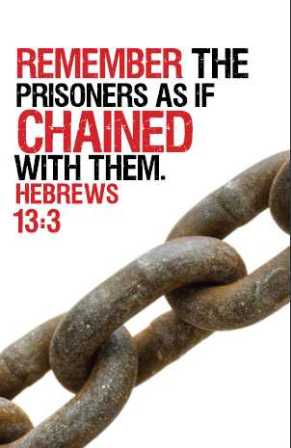
2:26 PM Making good headway today on my revision of Paul, Apostle of Weakness. Just came across a great quote that I simply have to share with you. According to C. C. Hill, "Paul made the ultimate career move: he changed worlds as well as jobs" (In God's Time: The Bible and the Future [Eerdmans, 2002] 187). Isn't that fabulous! Hill goes on to specify Paul's "job change" (from a persecutor of Christians who welcomed Gentiles to a messenger to Gentiles about Christ) and the "career change" (from a man who had looked at Jesus "in the old way, based on outward appearance, status, strength, wisdom, gifts" [p. 184] to the radically status-sacrificing, love-filled Paul.)
Here is what I wrote in response:
Paul teaches us that we cannot love God and the world system at the same time. There is no middle ground, no room for compromise. We must love one and hate the other. Like Paul, from earliest childhood we grow up learning to dominate and control others. Society places little stock on such qualities as love, humility, and mutuality. Cultural expectations encourage "old creation" behaviors, including intense competition (just look at your typical sporting event), whereas "new creation" values teach us to outdo each other in giving honor to others. Paul had learned that it was impossible to mix worldly and spiritual methods without hindering the cause of Christ. Being a servant of Jesus means rejecting the old traditional status-linked privileges in favor of serving in a community of love in which the members have the same care for each other (1 Cor. 12:24-25).
Exciting stuff. Got lots more to do however. Back to work!
1:25 PM Ken Keathley, my academic dean, has just written an outstanding piece called When Writing about Those with Whom You Disagree. Sorta reminds me of the definition of "constructive criticism" I heard back in college:
Constructive criticism is whenever I criticize you; destructive criticism is whenever you criticize me.
Anyway, read Ken's essay. You'll be glad you did.
1:14 PM Quote of the day:
Send me anywhere, only go with me. Lay any burden on me, only sustain me. Sever me from any tie but the tie that binds me to your service and to your heart.
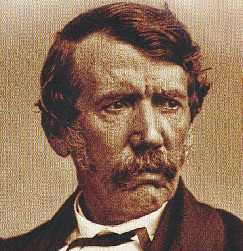
-- David Livingstone, who walked 29,000 miles in Africa to serve King Jesus.
Boy does that spur me on.
12:28 PM I mowed today for the last time until next summer. It's a glorious sunshiny day with temps in the low 70s. Just finished a delicious lunch with a salad made by Matt I had never had before: apple curry cheese. Marvelous. Now it's back to work on my book.
10:50 AM FYI: Amazon had just listed Why Four Gospels?
10:35 AM I am pleased to announce the winner to our contest: It is none other than Matt Capps, who blogs here. Congratulations good Sir! Interestingly enough, I notice that Matt's most recent entry actually quotes our featured Anglican, who of course is none other than Michael Green. Once you've digested Matt's essay you will want to read the article I quoted from below: Michael Green: A street fighter for the Gospel. So kudos to Matt, and many thanks to Michael for setting before us a sterling example of what it means to be a Christian scholar.
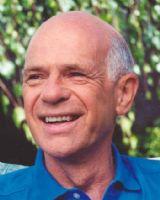
10:23 AM I am in prayer this morning for Becky's visit to the M.D. Anderson Cancer Hospital in Houston next week. She's scheduled for 3 solid days of appointments. I'm asking for clear, decisive recommendations from the oncologists. I also know that her visit will offer many witnessing opportunities. Whatever God calls us to do for the kingdom, He calls us to do it sooner rather than later. I sense this is Lionel Wood's heart in his latest essay. It has been many years since I learned this lesson, but I will always regret that I did not learn it sooner. God has been so faithful to me, and I thank Him for His unfailing love. I do not know what the future holds for Becky and me. But I do know one thing. I know that throughout eternity I'll be thanking God for the wife He gave me and for the kingdom work He allowed us to do despite our many handicaps. Little did I realize when I proposed to Becky over 34 years ago that the Lord God wanted me to marry her so that together we would serve Him as we do today. Our experience with cancer has led me to reflect on God's providential control and His special will for my life and for Becky's as well. I want to say as plainly and clearly as I can that had I known what would befall us today I would still have married Becky Lynn. God has used suffering to draw us closer to each other, and to Him. That doesn't make the pain and the grief any less difficult, but it does encourage us to follow Jesus more faithfully. How else can one understand Paul's words in Phil. 3:10-11, a passage I've taught on a million times: "I want to know Christ and the power of His resurrection and the fellowship of His sufferings, becoming like Him in death and so, somehow, attain the resurrection from the dead." That little word "somehow" strikes me. I cannot presume upon God. Yet I can always trust Him to do what is right and best. I can always look with confidence into the gentle eyes of the One who was raised from the dead following His unjust murder on a cross. I am angry at sin but not at my Savior. It is lunacy to pick a fight with Him. I'm learning that His withholding health from us is a sign of His great love for us. Frankly, I don't see how one can handle the problem of evil without such a conviction.
So pray with me for next week's adventure in Texas, that God alone would be glorified.
8:53 AM One of my doctoral students wrote to remind me that Larry Hurtado has been doing a series at his blog on his recent visit to China. I plan to check it out later today. The student wrote, "something tells me you'll agree with his harsh assessment of 'Christendom'!" Now where did he get that idea?
8:27 AM Okay, it's contest time again -- long overdue, I know. The first blogger to guess which 80-year old Anglican is being described below gets a free copy of the second edition of Why Four Gospels? (Hint: Until recently he spent months each year serving in a parish in nearby Raleigh, NC.)
"In this he is a rare beast – an academic with the common touch and an appetite for evangelism."
"_______ is perhaps best known for his books. He’s written over 50 of them."
"He wonders out loud, though, whether all theological training could do with being more hands-on and practical."
"_________ has managed to be an agitator for change. This has given him the freedom to move around the world, freedom to take on a job just because it looks interesting."
Remember: (1) No Googling! (2) Winner agrees to write a brief notice about W4G at his or her website. I'll announce the winner as soon as we have one, along with a link to the essay in which I found these marvelous quotes.
8:22 AM A high five to my friends and colleagues at Southwestern Baptist Theological Seminary, which began classes in Fort Worth exactly 100 years ago this week. The seminary was originally founded in Waco as a division of Baylor University.
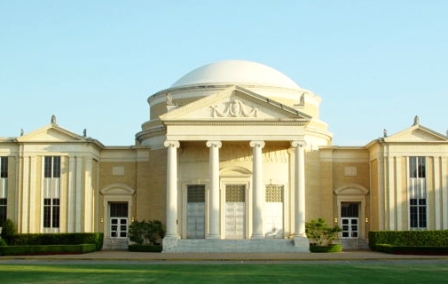
Speaking of SWBTS, go here to read an interview with my good friend Terry Wilder, Professor of New Testament, about his new book Entrusted with the Gospel: Paul’s Theology in the Pastoral Epistles.
8:12 AM Meet Robert Cornwall, author of the soon-to-be-released Ultimate Allegiance: The Subversive Nature of the Lord's Prayer.
Robert D. Cornwall is the Pastor of Central Woodward Christian Church (Disciples of Christ) in Troy, Michigan. He is also the editor of Sharing the Practice, the journal of the Academy of Parish Clergy. He holds a M.Div. and a Ph.D. in Historical Theology from Fuller Theological Seminary. He is also a graduate of Northwest Christian University in Eugene, OR and did graduate work in American History at the University of Oregon. He is the author/editor of several books including Visible and Apostolic: The Constitution of the Church in High Church and Nonjuror Thought (University of Delaware Press, 1993); Gilbert Burnet's Discourse on the Pastoral Care, (Edwin Mellen Press, 1997), A Cry from the Cross: Sermons on the Seven Last Words of Christ (CSSPublishing, 2008), Religion, Politics and Dissent, 1660-1832: Essays in Honour of James E Bradley, edited with William Gibson (Ashgate, 2010). He has contributed articles to a number of books, encyclopedias, and journals, including Religious Identities in Britain, 1660-1832, Events that Changed the Word in the Eighteenth Century, The Oxford Dictionary of National Biography , The Encyclopedia of the Stone Campbell Movement, Encyclopedia of Protestantism, Church History, Anglican Theological Review, Congregations, the Progressive Christian, and Anglican and Episcopal History. He also writes for several blogs including Ponderings on a Faith Journey (personal blog), Theolog, and [D]mergent.
As mentioned, Bob has a personal website that is worth book-marking. Go here to read his excellent review of James Dunn's Did the First Christians Worship Jesus? And speaking of our new series, the Areopagus Critical Christian Issues, here's the cover of my co-editor's forthcoming installment (Volume III):
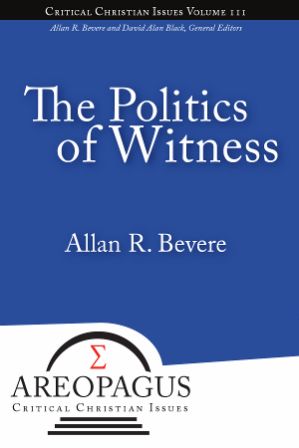
Allan, who holds a Ph.D. from the University of Durham in the U.K. and is an adjunct professor of theology at Ashland Seminary in Ohio, blogs here.
Wednesday, October 6
7:33 PM In my study of Paul this week I remembered something Ronald Hock once said in his book The Social Context of Paul's Ministry: Tent-making and Apostleship (Fortress, 1980). In his treatment of 1 Cor. 9:1-23, Hock notes that in the early church there existed a group of patrons who likely provided material support for the early Christian apostles. According to Hock, it is also probable that those apostles who did accept pay from the rich patrons were beholden to them as clients. Paul's refusal to accept support from the church, then, amounted to a rejection of the claim of these wealthy patrons on him. By refusing their support he undoubtedly would have offended some of them – a risk he apparently was willing to take. Paul thus makes clear to whom he owes his ultimate allegiance – Christ Himself and Christ alone. I suppose this is one reason Becky and I have never begun a "ministry" or become "incorporated" as a 501(c)3 organization. Once one goes that route, the emphasis almost invariably becomes that of supporting and perpetuating the organization rather than the kingdom. The psycho-social forces at work are, I think, almost too complicated and powerful to be overcome. The exclusive content of Paul's message was "Jesus Christ and Him crucified." In reading Paul in 1 Corinthians 9 we get a glimpse, I believe, of how the freedom of the Gospel can find concrete expression in the life of the community. By emphasizing the weakness and foolishness of the cross, which included his own embodiment of that weakness through his complete dependence upon God, he critiques the cultural values that are so often prized by the Eddie Longs of this world. I'll have more to say about this in my book on Paul.
6:43 PM Watch out! Baptists are going "Boom!" in Dallas.
6:40 PM Read Why I preach Christ and not justice, love, peace and simplicity. I am grateful for the reminder that King Jesus is worth being an apologist for.
6:32 PM This You Tube clip is, like, you know, totally awesome.
6:25 PM Perkins School of Theology announces openings in Worship and Theology.
6:22 PM Without a doubt, I'm not a huge fan of Keith Olbermann. But I think he gets it right in this commentary on the Cordoba House, the Islamic community center to be built at 45 Park Place in Manhattan. I appreciate his quote from Martin Niemöller ("They came first for the Communists and I didn't speak up because I wasn't a Communist…"), the challenge to our ethnocentricity, and the reminder about our American values. "Our greatest enemy," he says in the clip, is our "stupidity exploited by rapacious politicians." What do you think?
6:16 PM Who is Rick Sanchez?
6:12 PM As you may know, I serve as co-editor of a new chain of books on theology and ethics called the Areopagus Critical Christian Issues series. My Christian Archy was the first volume to be published in the series. I'm glad to report that the second Areopagus volume is in the hopper, and it's a provocative book on prayer that I think you'll enjoy. Here's a photo of the cover.
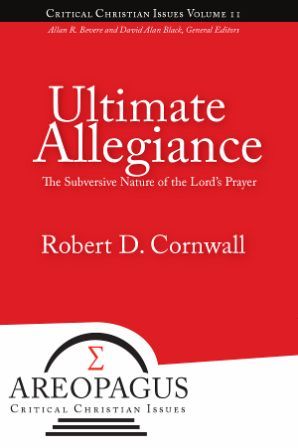
I think Energion comes up with some nice-looking book faces. And there's more good stuff to come after this.
6:08 PM Rick Brannan has a few thoughts about Porter, Reed, and O'Donnell's Fundamentals of New Testament Greek. Looks like Rick is looking for a slightly different approach:
What do I think of it? My initial impression is that it is heavy. Not physically, but in the way it presents data. It expects you to be serious about wanting to learn Greek, if you're not, then don't bother. If you are, then dig in and be persistent.
Frankly, this seems like a better book for someone who has already gone through a year of Greek, forgotten most of it, and wants to work back through it to remember/recall. Alternately, it could be a good follow-up for someone who took a summer intensive and wants to keep it up. The way the book is organized (and its affinity for charts and paradigms) almost makes it better for that first-hand reference you want at the end of our first year of Greek. I think I'd hate to learn from it but would like to refer to it to remember things.
I'll reserve judgment until I get my copy of the book, though I did note that it is twice as long as my beginning grammar. Samples of the contents can be found at the Amazon site.
6:00 PM These are some nifty maps:
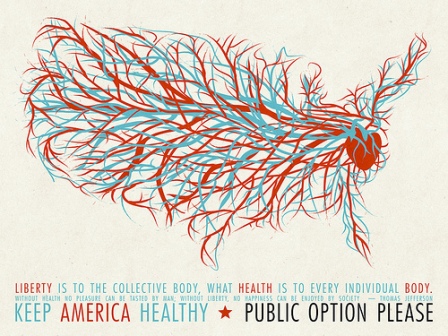


For more, go to Strange Maps.
5:55 PM Scot McKnight talks about the books that have influenced him the most.
5:43 PM Newsflash! Blogger awarded honorary doctorate!
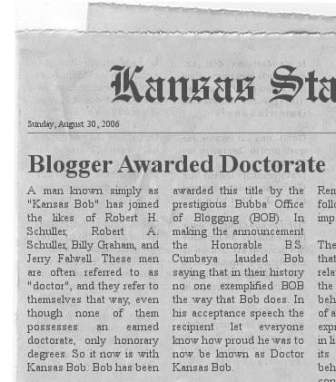
5:32 PM Just spent two days on campus. Research and writing is a great experience and I enjoy it a lot. While in the Forest of Wake I had a chance to visit with my friend and colleague Maurice Robinson. He's now home, enjoying the 7 (!) meds he has to take daily for his condition. He is weak but seems to be recovering well from his MI and is gaining strength for his bypass surgery at the end of the month. Do continue to pray for him. His beginning Greek classes will be covered by one of my doctoral students, Paul Himes. Paul is an articulate young man, and I'm sure he will do well subbing for Big Mo.
My visit to Raleigh Orthopaedic I owe to the after-effects of our good old friend Adam. I really felt strange trying to describe the numbness in my right foot which, thankfully, the specialist thinks is only a temporary manifestation of Plantar Fasciitis. There's still a lot of pain, but it comes and goes, and so is tolerable. I just try not to hobble lest folk think I'm getting "old." Otherwise I spent most of my time huddled in a mass of books and journal articles I'm reviewing for the revision of Paul, Apostle of Weakness. The most important studies I've had to take into account include:
-
Ulrich Henkel, Kraft in Schwachheit.
-
Mark Reasoner, The Strong and the Weak.
-
Sze-kar Wan, Power in Weakness.
-
Volker Gäckle, Die Starken und die Schwachen in Korinth und Rom.
-
Petrus Gräbe, The Power of God in Paul’s Letters.
-
Ulrich Heckel, "Der Dorn im Fleisch."
-
Scott Andrews, "Too Weak Not to Lead."
-
A. J. Goddard and S. A. Cummins, "Ill Or Ill-Treated? Conflict and Persecution as the Context of Paul’s Original Ministry in Galatia."
-
Clinton Arnold, "Returning to the Domain of the Powers: Stoicheia as Evil Spirits in Galatians 4:3, 9."
-
Troy Martin, "Whose Flesh? What Temptation? (Galatians 4:13-14)."
-
Johannes Woyke, "Nochmals zu den 'schwachen und unfähigen Elementen' (Gal. 4.9)."
-
Daniel Akin, "Triumphalism, Suffering, and Spiritual Maturity: An Exposition of 2 Corinthians 12:1-10 in Its Literary, Theological, and Historical Context."
-
David Garland, "The Dispute Over Food Sacrificed to Idols (1 Cor 8:1-11:1)."
-
Wendell Williams, "1 Corinthians 8-10: A Retrospective After Twenty-Five Years."
-
J. A. Loubser, "Paul and the politics of apocalyptic mysticism: and exploration of 2 Cor 11:30-12:10."
-
Pierre de Salis, "L’écharde dans le chair: Un signe visible de la presence de Dieu?"
-
Jerry McCant, "Paul’s Thorn of Rejected Apostleship."
-
Guillermo Ruiz, "Ma puissance se déploie dans la faiblesse."
-
Jan Lambrecht, "Zwakheid en Krakt (2 Korinthiérs 12, 1-13)."
-
Scott Bartchy, "When I'm Weak, I’m Strong."
-
Sebastian Schneider, "Glaubensmängel in Korinth: Eine neue Deutung der 'Schwachen, Kranken, Schlafenden' in 1 Kor 11, 30."
-
Nélio Schneider, "Por Isso Há entre Vocês Muitos Fracos e Docentes, a Vários já Dormiram."
-
Janet Powers, "A 'Thorn in the Flesh': The Appropriation of Textual Meaning."
These all look very promising. I'm intrigued to see how other authors handle the same issues I dealt with so long ago. My goal this month is to package all of these exegetical insights into one chapter, and then get the book off to the publisher. I'll be curious to see what the result is. I am really impressed with Gäckle's massive work. I feel very virtuous for forcing myself to read all 636 of its densely packed pages. I'm finding little to disagree with. It's a lot of hard work writing this chapter. Sometimes it's sheer drudgery. But there's a fulfillment to see how often my 1984 work has been quoted by others, including Ralph Martin in his commentary on 2 Corinthians in the Word Biblical Commentary series. Oh yeah, I also proofed the final pages of Why Four Gospels? It is still due for hatching on October 15. I'd profit from your feedback once the second edition is out. Hope it serves a need and gets a wide reading. Seems unlikely, but such is life. Publishing books is a crazy thing. My beginning grammar remains strong in the Amazon sales rank, but the rest of my books follow along like Captain Von Trapp's children in The Sound of Music. Will Why Four Gospels? be the next Gretel?
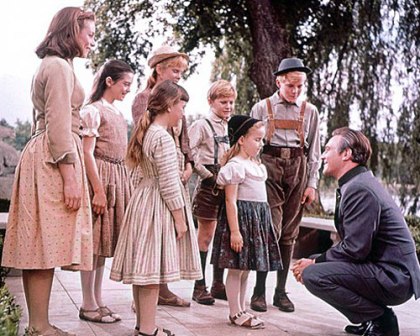
On a less academic note: I'm dealing with several personal issues that really force me to my knees. My goal is to be as totally honest with myself and others as I can. So I pray for wisdom, grace, and humility. I have begun re-reading A Grief Observed by C. S. Lewis, which is turning out to a hugely demanding project emotionally. When Lewis married Joy Davidman, he knew she was dying. But the same is true, to a degree, of any couple who has ever married. Though couples never talk about it, we know that one of us will die before the other. Lewis wrote, "Bereavement is not the truncation of married love but one of its regular phases – like the honeymoon." Whatever phase our marriage happens to be in, we are called to faithfulness. Odd that I should be reworking a book on weakness as Becky and I are journeying through cancer together. I can't write details here, but the challenge is to keep coming back to trust – trust in the character of God, in the sufficiency of the Christ, in the presence of the Holy Spirit. Lots more to say on this subject that will have to wait. Needless to say, I feel I am very much a "work in progress." If I had to give myself a grade for what I've learned about suffering in the past year, it would have to be an "Incomplete."
Tuesday, October 5
6:39 AM I'll be on campus today and tomorrow for some serious writing. Students, feel free to stop by my office if there is anything I can help you with. My door is never closed, even when I'm writing :)
Monday, October 4
5:41 PM About to take the LUV of my LIFE out to Ruby Tuesdays in the great big city of Henderson, NC, for dinner tonight.
5:30 PM How do you explain a completely brown cow in a herd of black angus? Genetics? I don't know, but he sure is pretty.
2:10 PM Off to get a vehicle inspection sticker and supply our state's coffers with loose change for another year. But why do they have to mount them in the middle of the front windshield?
2:03 PM Just made an appointment with a foot specialist in Raleigh for tomorrow morning. Message to foot: Shape up or it's the Russian Front for you!
1:59 PM Hebrews students, if you're not planning on attending the annual ETS meeting this year, you should. Here's why.
1:08 PM Quote of the day:
We have turned over care of the fatherless to the child welfare system. Widows are relegated to being cared for the Federal government for income, health care and food. The homeless, the drug users, the prostitutes are all problems for the police to handle. Keep them out of our way and more importantly keep them out of our sight. The last thing we want our kids to see on our way to church wearing our Sunday best is some bum or a hooker. We need to focus on worshipping Jesus, not on the downtrodden that probably deserve to be on the streets anyway.
Read Conservative Evangelicals Are In Large Part Responsible For Big Government.
1:05 PM If Jesus worked at MacDonald's.
9:55 AM The statistics are in:
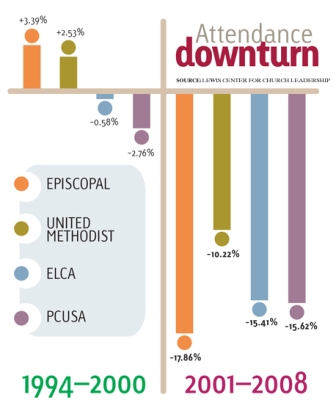
For analysis, see the latest issue of The Christian Century.
9:44 AM Chris Hahn thinks that Jesus would be an awesome tweeter.
9:32 AM Next week in our Hebrews class we'll be in that great sixth chapter. If you want a Charlie Horse between the ears, try tackling these verses! So much truth here, and so much controversy -- especially if we try to flesh out the teaching of the great apostle (oops, auctor).
1) For starters, preachers who lay the foundation, over and over again on Sunday morning, are self-condemned in 6:1-3. I grew up in church in Hawaii where every Sunday sermon was purely evangelistic. Edification was, at best, an afterthought. This is milk! This is proper for newborn babies but it is completely inadequate for anyone who desires to grow in their Christian life. Yet we preach conversion again and again and call it the "Gospel." The Gospel is much more than conversion. As a teenage I failed to get solid food from my pastors. My life was weak and struggling as a result. Of course the fault was not all theirs. I failed to take ownership for my personal study of the Bible. All this changed when I was about 16. I have long been convinced that one of the greatest weaknesses of evangelical Christianity is the shallow "preaching" we have to endure Sunday after Sunday. I want to cry out, "Stop your baby talk!"
2) In 6:4-8 I think the participles are the key. (But I may be wrong!) Once again, looking carefully at a passage in the Greek can help us to better understand how the text works. In a nutshell, the author is saying that repentance is impossible as long as we are unrepentant. As long as we continue to crucify to ourselves the Son of God and expose Him to public ridicule, forget it. It will be fun analyzing the syntax and structure of this passage on the board next week.
3) In 6:9-12 we have, once more, a scriptural emphasis on good works as the unmistakable evidence of the new birth. Love and concern for others, deeds of compassion -- this is the test of our Christianity, not the books we have authored. Students, give full attention to this! Put into practice what you know, put your knowledge to work. Today's world is hungering for the visible evidence that we are the children of God. Let's show them!
8:01 AM Headache update: It finally left me at 2:00 this morning. That was some 24 hours. Feel like a truck hit me. As soon as recover I plan to paint the upstairs porch -- Lord willing!
7:58 AM Monday morning shout to my friend Willy Williams of Pensacola, Florida. He lives and works in the roughest neighborhood in town called "The Bottom," where he does evangelism, after-school counseling, and food distribution. He refers to his ministry as "The Top of the Bottom." Love it. Here's a man sharing the love of Jesus relationally and relentlessly. God bless you, brother Willy!
7:50 AM Recently I've been selecting doctoral and Th.M students for next fall. It's a hugely important decision for me and requires much prayer. Christ's decision to select the Twelve was one of the most crucial decisions ever made in world history. Not all of them proved faithful but the method succeeded. His small band of obedient followers turned the world upside down in a mere 30 years. In the nitty-gritty give-and-take of mentoring doctoral students, we learn what discipleship means. Scholarship can't come first. To let the symbols of learning, the degrees, the studying become too important is vulgar. It's our devotion to Christ, our studying Him, our worshipping Him with our minds, and our ministering Him to others that counts. I'm looking for students whose commitment to academic excellence is matched by their compassion for the nations. Are you up to it?
7:42 AM Praying today for our student mission team in Haiti this week. They're building into their lives a genuine, heartfelt reach to the world even as they learn how to serve others in Jesus' name. God has a haunting love for the nations. He forgets no one.
Sunday, October 3
4:38 PM David Flowers reviews N. T. Wright's What Saint Paul Really Said.
4:14 PM Lionel Woods says we ought to get back to the basics and begin practicing good works, as we are commanded to. Begin talking like that and you'll be accused of being anti-intellectual and even anti-theology.
Is that a fair characterization? Take a man like the brilliant apologist Francis Schaeffer, whom I had the privilege of hearing a couple of times when I lived in Switzerland. His book The Church at the End of the Twentieth Century summarizes it well: The greatest apologetic for Christianity is love. Always has been and always will be. Of course, we must love God with our minds as well as with our hearts, and in that sense no Christian can ever be truly anti-intellectual or anti-theology. Everything we do for Christ must have a biblical basis. Even more importantly, we are to be people of integrity, sagacity, and spirituality. Jesus never concealed the cost of serving His kingdom. Greatness comes only through servanthood, the pattern for which He Himself set for us in the Upper Room. Of course, Christ did not mean we should perform mere acts of service, which even the lost can do, but that we should have a spirit and a lifestyle of service, which only the Spirit of the Almighty can produce in an individual. As Lionel notes, "Yes Christ has set us free from the Law, yes we are saved by grace, yes it is by faith; however, these things are not the end, God is now placing the burden of serving (loving, good works) one another and even others (see Galatians 6:10)."
I hope that Lionel's essay will rekindle an aspiration in each of us for those good works that God foreordained that we should walk in them.
4:08 PM Regent University announces an opening in Christian History.
3:55 PM My body is here in Virginia trying to write but my mind wanders disobediently to Ethiopia. Here are some pix from our March trip.
1) Welcome to Burji!
2) B with her family.
3) A gift goat.
4) Becky sharing her testimony with the crowds.
5) Singing "His Name Is Wonderful" and "There's Just Something About That Name." (Paul and Jan, watch out!)
6) Our adopted grandson Nathan.
It was a wonderful trip, just like the old days when only B and I would travel to the land of her youth. Do we miss Ethiopia? Are there cows in Texas?
3:25 PM CT's lead story on Al Mohler is a good read. (NB: Typo on page 6: clich for cliché.)
3:20 PM Question to my fellow profs: Do you ban Twitter in your classroom? I don't. I do ban lousy jokes, however, especially by the teacher.
3:13 PM Barnes and Noble is offering a hefty pre-publication sale on my book Why Four Gospels?
3:06 PM Didn't make it to Bethel Hill this morning after all. Couldn't get rid of my sinus headache (i.e., built in barometer -- yes, a storm is heading our way). Heat, pain reliever, massage -- nothing worked. A reminder to add "Lord willing" when I write about my future plans.
7:41 AM This morning I'll be gathering with the Body of Christ in a building dedicated to such gatherings.
Some people call it a sanctuary -- a very misleading term, as the room in which we meet is no more sacred in God's eyes than the restroom across the hall. Many followers of Jesus will prefer to meet in a home this morning instead. They seem to understand, perhaps in a deeper way than many "church-goers," that in the kingdom, buildings aren't sacred. When Jesus spoke with the Samaritan woman, He declared that even places we deem most sacred don't deserve our worship. Jesus is Lord, and He can be worshipped anywhere, anytime. His "church" is nothing more than an assembly of people who have welcomed God's kingdom into their lives and relationships. Followers of Jesus are therefore always suspicious of man-made structures that seek to replace kingdom values. The church is not a building. The church is not an institution. The church is not a program. These are only and always human creations. They never supersede kingdom authority. Or biblical authority for that matter. None of them is sacred though they often become "sacred cows."
But there is more. Each of these things I've just mentioned -- buildings and institutions and programs -- each of them can be, indeed ought to be, dedicated as a tool for celebrating the Good News of the kingdom. When this occurs -- and I'm afraid it occurs all too infrequently -- the focus is no longer on physical or institutional or programmatic objectives. We now view our meeting places as nothing more than that -- mere skins of the kingdom's ferment. They are no longer the focus. We even stop idolizing them.
So, this morning I will meet with the brethren in a structure that some sacralize and that others view merely as a wineskin. The issue is one of attitude and perspective. A "religious" building can witness to our pride or to the wine. The same is true of a home fellowship. Either structure can begin to calcify. Indeed, given enough time, they probably will calcify. Then we will have to come back to the place where we started: recognizing that no place is sacred to God except in the sense that all places are sacred to God.
Saturday, October 2
8:16 PM Dinner, I'm told, was a smashing success. So were the raisin muffins that the boys and I made for dessert. We're sore after working on the porches today but not too sore to miss fellowshipping with the brethren at The Hill tomorrow morning. Yes, it looks like B is feeling well enough to attend!
5:36 PM Guess what I'm cooking for supper tonight? Liver and onions. Appleby's, eat your heart out.
3:12 PM A friend of ours sent us this photo recently. He snapped it while we were attending a Civil War function many years ago in North Carolina. Doesn't my lady look purdy? She sewed her dress herself, as well as my coat. "In her hand she holds the distaff and grasps the spindle with her fingers" (Prov. 31:19)!
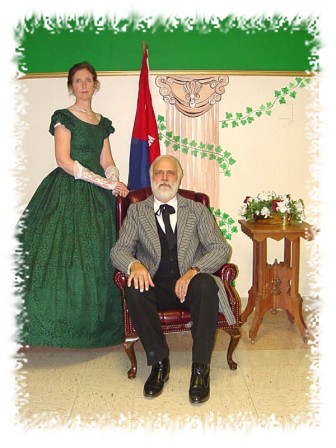
2:51 PM Sent my Greek students home this week with their first take home exam of the semester. It covers chapters 3-6 of my beginning textbook. I will reward any student who receives a perfect score of 110 with a free copy of one of my other books. This is my way of saying "thank you" to them for the hard work they've invested in this course. It's a simple means of giving praise where praise is due. I also try to be very careful to thank the other students whose grades are not quite as high. I thank them for plodding along week after week, day in and day out. Mark Twain once said he could live for two months on a good compliment. We can't thank people only for their home runs; we can thank them for their efforts as well. I have a drawer in my office reserved for cards or emails I've received through the years from my former students thanking me for teaching them. I can't tell you how important a thoughtful note is when you're having a rough day. I'm learning how to do the same thing -- fire off a thank you email, or just stop someone in the hall and say how I much value them.
John Mackey, CEO of Whole Foods, closes every business meeting with a round of "appreciations" for those in attendance. Not a bad idea for professors as well.

2:51 PM We're priming and painting the upstairs on a perfect day. Right now the temp is a cool 71 degrees and there is not a single cloud in the sky. O glorious fall!
7:11 AM New essay at DBO: The Road Less Traveled.
6:22 AM Over at Between the Times they've begun shamelessly promoting the publications of SEBTS faculty. I like that. Giving honor where honor is due. The latest author to be featured is "Gorgeous" Heath Thomas.
4:38 AM Up early this morning, keenly aware of my own weaknesses and personal handicaps, driven to my knees to pray for situations that require a God-sized answer, forced again to reach out to the only source of strength I know, entreating the Almighty for grace to help in time of need. Last week in our Hebrews class I was deeply struck by the statement that Jesus "offered prayers and appeals with strong crying and tears" (5:7). This is the same Jesus who faced all of life with equanimity and calmness of spirit. If He was driven to His knees, how much more should I be. Paul once wrote that Ephaphras "labored in prayers" for the Colossians (Col. 4:12). Paul himself describes his own "prayer weakness" in Rom. 8:26-27. In my book Paul, Apostle of Weakness, I spent several pages trying to understand what Paul meant when he said they we do know how to pray as we ought. Could it be that in the final analysis prayer is ultimately an inner-Trinitarian process, with God speaking to God, since only the Spirit can search the heart and know the mind of God as He "intercedes for the saints"?
Students, I want you to know you were prayed for this morning. Ditto for Dr. Robinson and others suffering with physical problems. It is my joy to lift you up before the throne.
Speaking of Paul, Apostle of Weakness, I hope to complete the revision of this book during the month of October. Please pray for and with me that I can accomplish this goal. This book is very important to me. It was conceived in Basel, Switzerland. I was enrolled there as a student at the University of Basel from 1980-83. I wrote this book as my doctoral dissertation. Since its publication back in the days when the Ark landed on Ararat (1984) my life has undergone several severe tests. The problem of pain is as old as the human race, but until it becomes personal, until our own lives or homes or children are hurting, it remains a theoretical matter. Since writing the book I've often had to ask myself whether I really learned its message. I've often said to myself, How odd. I spent a year writing a dissertation. I've spent 27 years learning what it meant.
The apostle Paul was severely handicapped. He referred to his "thorn in the flesh" ("thorn" is probably a mistranslation). Whatever his thorn was, it constantly tormented him. He felt like it was a stake on which he was impaled. Who among us has never felt that way? Who has never felt hindered from fully serving the Lord because of some handicap? What I learned in writing the book was that God delights in using our thorns for His purposes. As the great Baptist preacher Charles Spurgeon noted, "Grace grows best in the winter." As I look back over my own life I find myself learning the lesson of my dissertation over and over again: that the thorn may not be removed, but His grace is enough.
Once upon a time an old farmer was showing his young farmhand around the corral, where his mule was munching on some tufts of grass. The old farmer began to stroke its neck. The younger man also approached the mule -- from behind. Suddenly the mule's leg shot out, sending the farmhand twenty feet into the air. Dazed and hurt, he picked himself up and, in a shaky voice, said, "Why didn't you tell me the mule would kick?" The old farmer drawled, "Well, son, showin' is better 'n tellin'."
I have a sneaking suspicion that as I work on this book project God will see to it that it will be more than a mere intellectual exercise. If God doesn't change our painful circumstances when we pray for Him to do so, it's probably because He has a very important lesson to teach us. When calamity strikes, perhaps we should ask, not "Lord, how can I get out of this?" but "Lord, what can I get out of this?"
O, how I want to learn to glory in my weaknesses and not merely tolerate them!
Friday, October 1
7:25 PM Need some inspiration tonight? Read Making New Friends in a Land Far, Far Away, which features our youngest missionary to Ethiopia ever, Thomas the "Tinnish Faranji" (Little Foreigner).

My favorite quote:
Thomas begged to stay in Burji. He was satisfied with the simple life, a life without television, electronic devices and video games. In fact, he lives without them in America.
Isn't that great?
6:54 PM Ever been kissed by a seal? I was today -- at the IMAX theater at the Virginia Aquarium in Virginia Beach. The 3-D movie "Under the Sea" was as realistic as it gets. I took the boys there today for an all-day outing (10 hours, including the drive), and I think it was a complete success.
In other news, Becky's blood counts are doing great. It looks like we'll be able to proceed to round #3 of Adriamycin after all. She and Liz spent the day together shopping and running errands. Glad they had some quality, undistracted time together. I post the following pix in honor of Liz's husband, who is visiting with friends and family in upstate New York for a few days. Hope you enjoy them, Matt. Come home soon!
